Where do we begin with the greatest international motorcycle racers of all time?
There have been some phenomenal racers over the past 80 years who have graced our screens and the tracks including Kenny Roberts, Walter Villa and Valentino Rossi. We’re kicking off our countdown now with number 80, see who is crowned International King of Racing!
80. Bruno Ruffo (Italy)
Italian rider Ruffo won the inaugural 250cc World Championship in 1949 when riding for the factory Moto Guzzi team before taking the 125cc title a year later when team orders meant he was instructed to let his team-mate win. In 1951 though, he again captured the 250cc title although an accident a year later meant his career came to an early end. He died in 2007 aged 86.
79. Tepi Lansivouri (Finland)
Along with Jarno Saarinen and Mika Kallio, Lansivouri is one of Finland’s greatest ever riders and had his most successful years in 1973 when he finished second in the 250cc World Championship and in 1976 when he took second behind factory Suzuki team-mate Barry Sheene in the 500cc World Championship. As well as Suzuki, he also rode for the works Yamaha team.
78. Scott Russell (USA)
Russell won the 1992 AMA Superbike Championship and a year later became the second American to win the World Superbike title. He won the Daytona 200 a record five times and also the Suzuka 8-hours whilst he also stood on a 500cc Grand Prix podium when riding for Suzuki, finishing sixth overall in 1996.
He had two more years in World Superbikes before his career ended after suffering injuries in a startline incident at the 2001 Daytona 200.
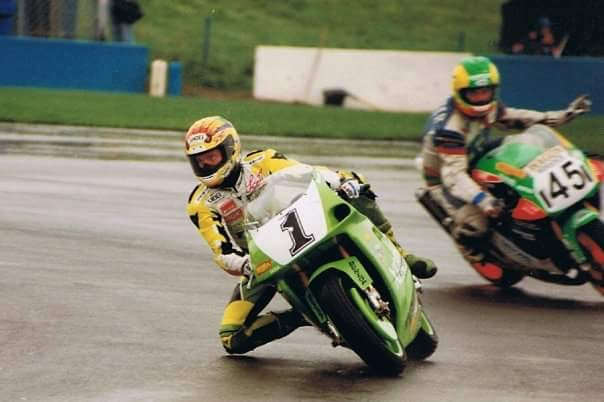
77. Loris Reggiani (Italy)
One of the best riders never to have won a world championship, Reggiani came to the fore when he finished second in the 1981 125cc World Championship before having a brief spell in 500s.
However, he’s best know for his association with Aprilia, giving them their first ever Grand Prix win in 1985, and going on to finish second behind Luca Cadalora in the 1992 250cc World Championship. When he retired in 1995, he’d won 7 GPs and stood on the podium 41 times.
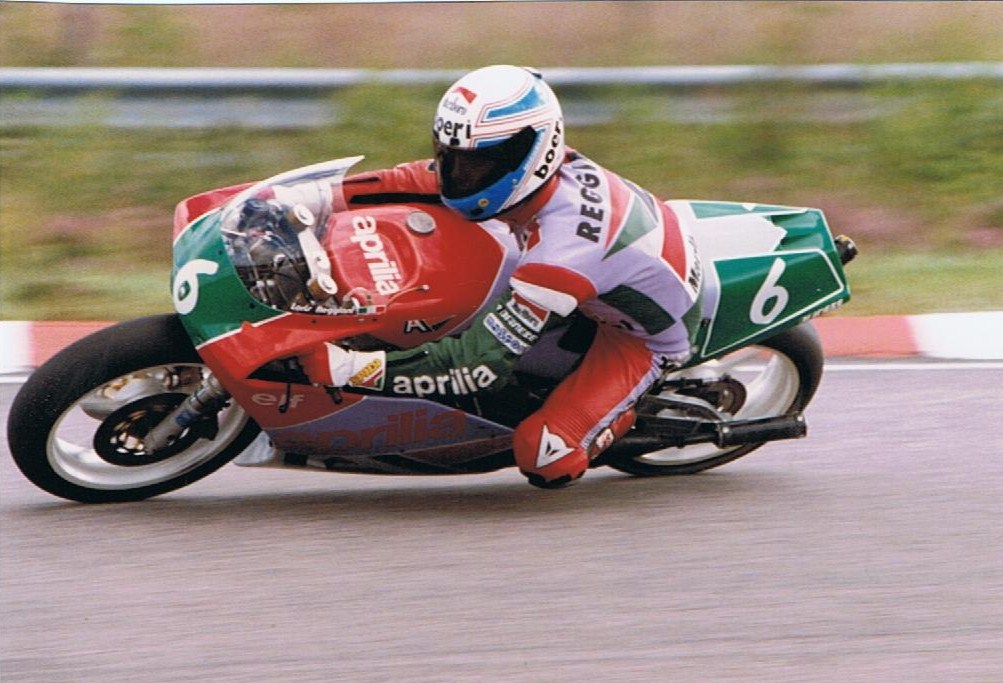
76. Aaron Slight (New Zealand)
Slight was Australian Superbike Champion in 1991 and this led to a full decade of competition in the World Superbike Championship. Riding for Kawasaki and then Honda, he took 13 wins and 87 podiums in total and is, arguably, the best Superbike rider never to have won the world title. He also took three successive victories at the Suzuka 8-hour but a brain injury ultimately led to him quitting two wheels although he made a full recovery.
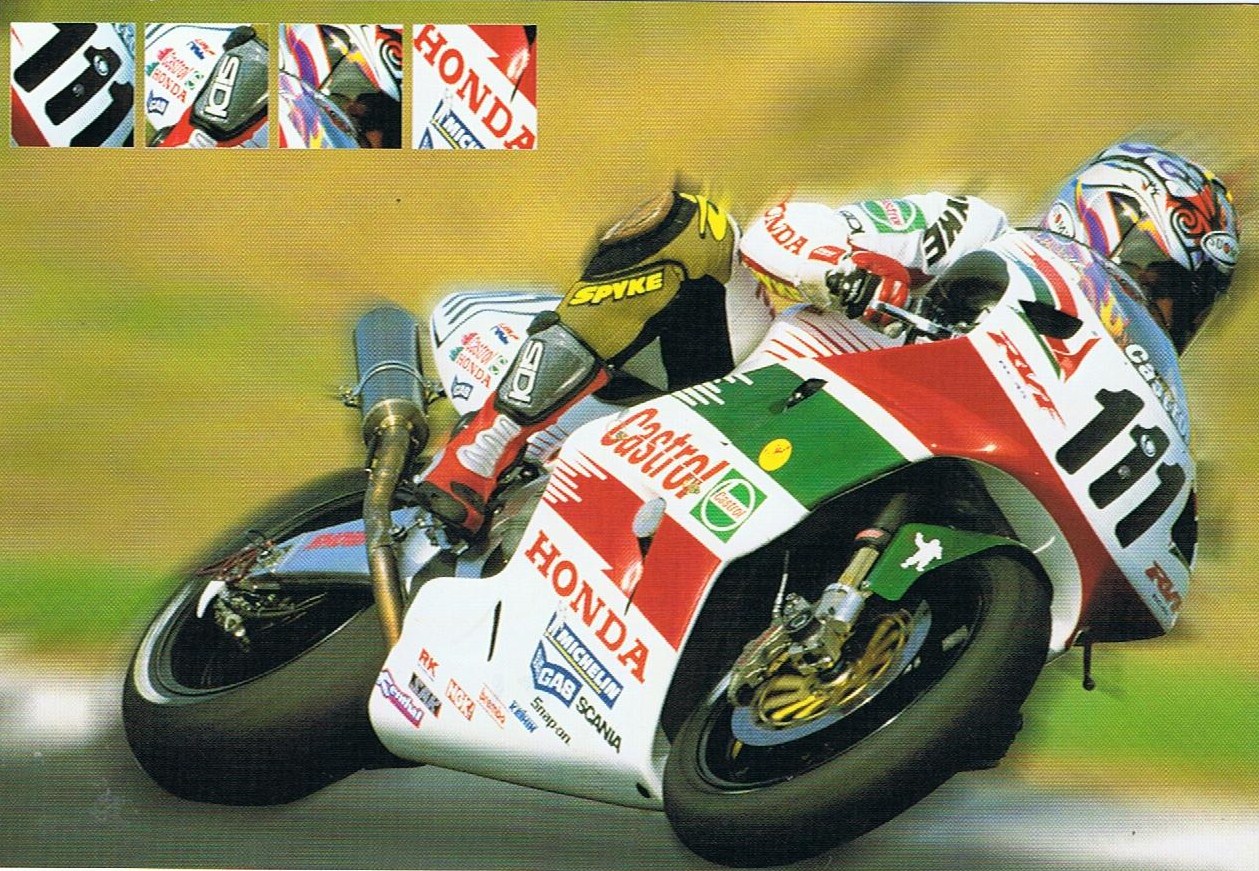
75. Fred Merkel (USA)
Having been three time American Superbike Champion, Merkel won the 1984 Suzuka 8-hour race before entering the debut World Superbike Championship season in 1988. He went down in the record books as the first rider to ever win the title and promptly made it two in a row in 1989. He returned to racing in America in 1995 but retired after being injured in an accident at the Firebird Raceway.
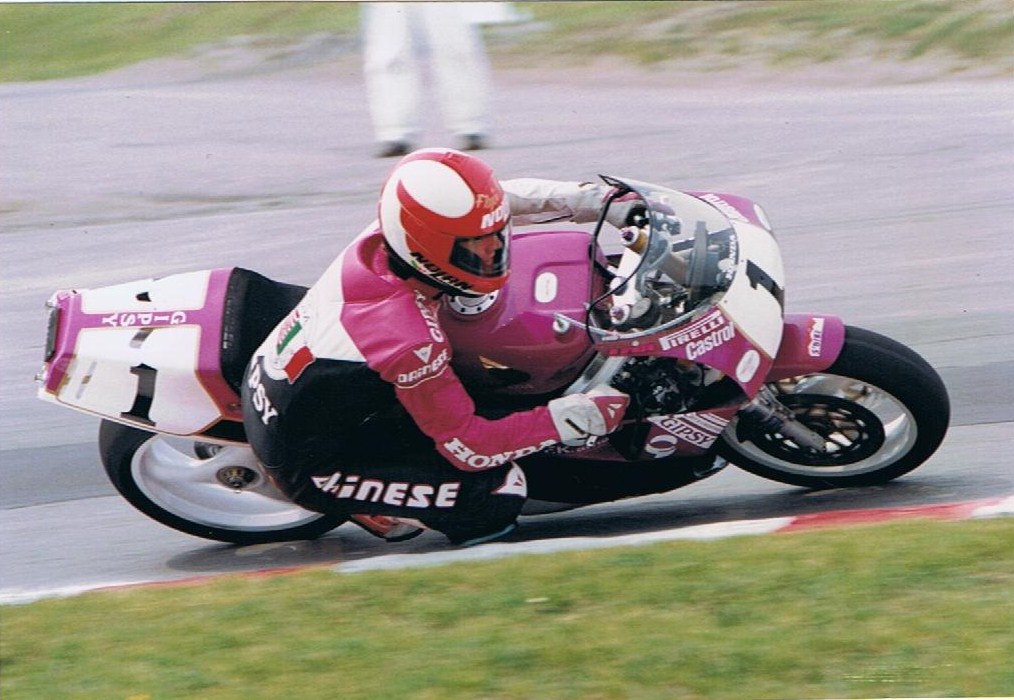
74. Patrick Pons (France)
Pons was just 22 when he finished in third place in the 1974 250cc and 350cc World Championships and although success in the 500cc category was limited, he shone on the big 750cc machines, winning the 1979 World Championship. That made him the first Frenchman to win a world title but, after winning the 1980 Daytona 200, he lost his life at that year’s British Grand Prix at Silverstone.
73. Mika Kallio (Finland)
With over 200 Grand Prix starts, Kallio is one of the most experienced riders still competing in the world championships and, after Ralf Waldmann, has won the most races (16) without winning a world title. The Finnish rider has stood on the rostrum 49 times in the 125cc and Moto 2 classes, twice finishing second in the 125cc class (2005 and 2006) and third in the 250s (2008), all for KTM. He also finished second overall in the 2014 Moto2 World Championship.
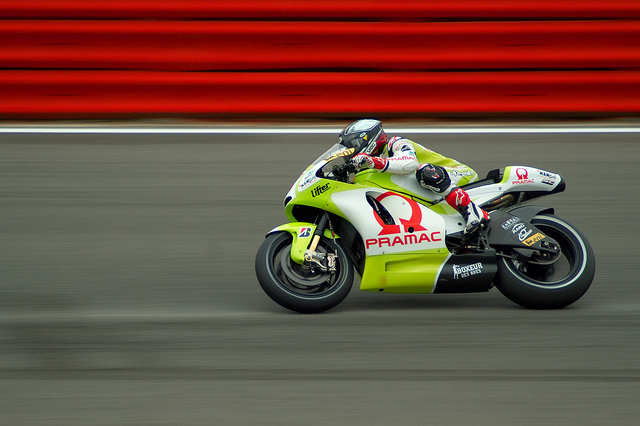
72. Dieter Braun (Germany)
German rider Braun won the 1970 125cc and 1973 250cc World Championships before a serious accident at the 1977 350cc Austrian Grand Prix at the Salzburgring ended his career. He is also remembered for an incident after he won the 1971 East German Grand Prix. As the West German national anthem was played, the East German crowd began singing the words!
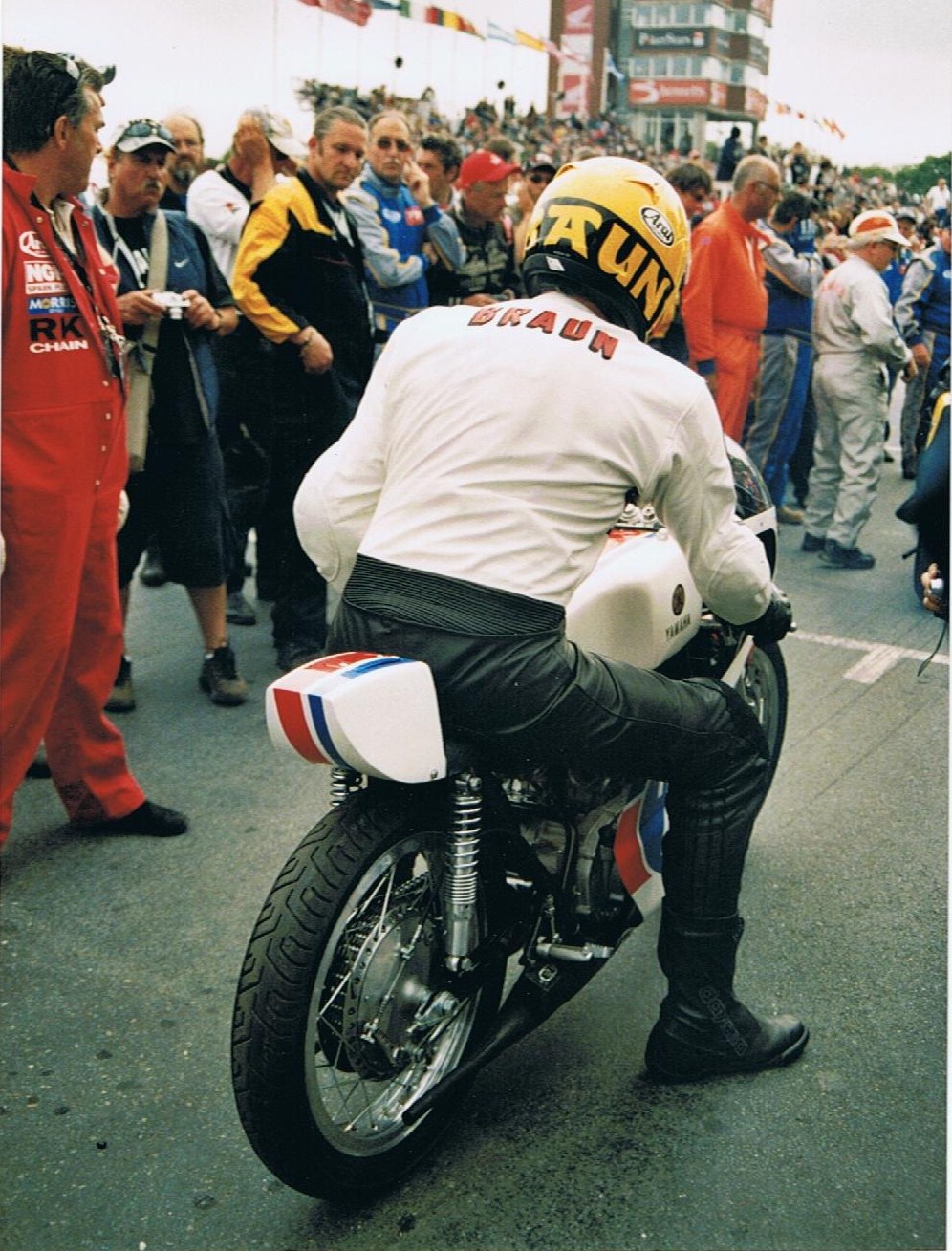
71. Raymond Roche (France)
Roche first found success in 1981 when he won the World Endurance Championship but he was soon impressing in the 500cc World Championship, finishing third overall in 1984. After more strong performances on both Honda and Yamaha, he switched to the World Superbike Championship with Ducati, going on to win the 1990 title as well as finishing second in 1991 and 1992.
He is one of only four native European riders from outside of the United Kingdom to have won the World Superbike Title.
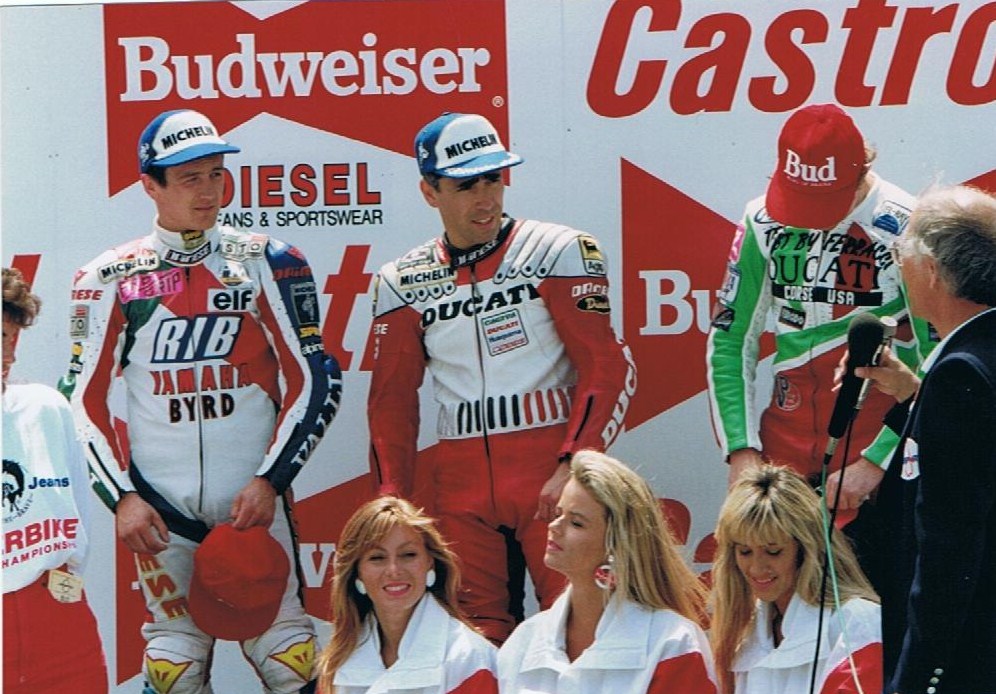
70. Kenny Roberts Jnr (USA)
Roberts made his World 500cc debut in 1993, contesting the 250cc series on a full time basis in 1994 and 1995. Between 1996 and 1999, he rode for his father’s team but success ultimately came when he joined Suzuki in 1999, winning the first two races and finishing second overall. 2000 was the highlight of his career though as he took four wins and nine podiums to clinch the title and become the first son of a former champion to also win the title.
His defence saw him only manage 11th overall and the next four seasons saw Suzuki struggle in the new four-stroke era. He returned to his father’s team in 2006 and finished 6th in the standings at the end of the year, which was his best result since winning the championship in 2000. However, he retired at the end of the following season.
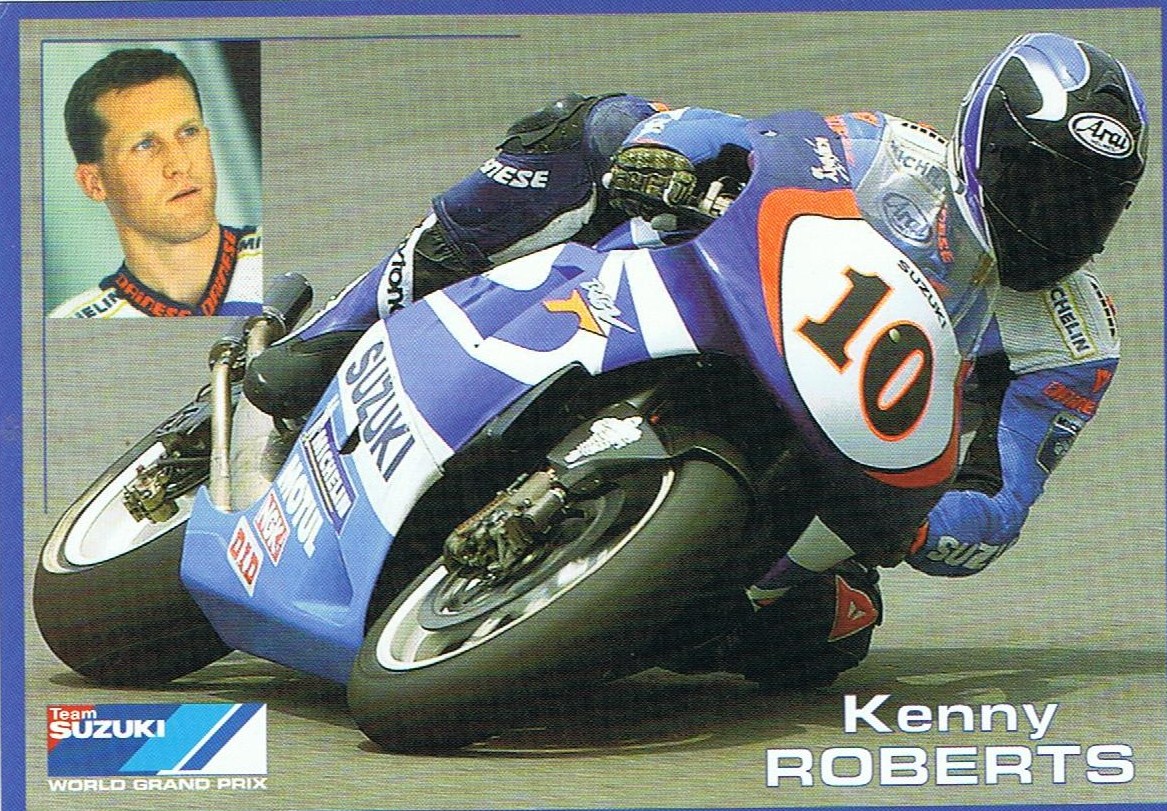
69. Noriyuki Haga (Japan)
Like Aaron Slight, Haga is one of the best Superbike riders never to have won the World Championship but the Japanese rider did everything but take the number one plate winning 43 races in total and standing on the podium on 110 occasions.
He is primarily associated with Yamaha but also won races on Ducati and finished second overall on three occasions and third four times. He also had spells in 500cc and Moto GP, taking a podium in the former, and won the Suzuka 8-Hour.
68. Mat Mladin (Australia)
After winning the 1992 Australian Superbike Championship, Mladin had a brief spell in 500cc Grands Prix but his greatest achievements came with Suzuki in America. He won the AMA Superbike Championship a record seven times (no other rider has won more than four), and holds the series records for wins (83), pole positions (50), wins in a season (11) and poles in a season (10).
67. Kel Carruthers (Australia)
Carruthers won the Australian 125 cc, 250 cc, 350 cc and 500 cc National Championships before moving to Europe in 1966 and his talent soon saw him signed by the Benelli factory, rewarding them with the 1969 250cc World Championship.
He then moved to Yamaha, winning the Isle of Man TT for a second year, and finishing second in both the 250cc and 350cc World Championships. Yamaha then offered him a role in America going on to be the manager of their American racing team, playing a key role in managing Kenny Roberts and Eddie Lawson to their World Championship success.
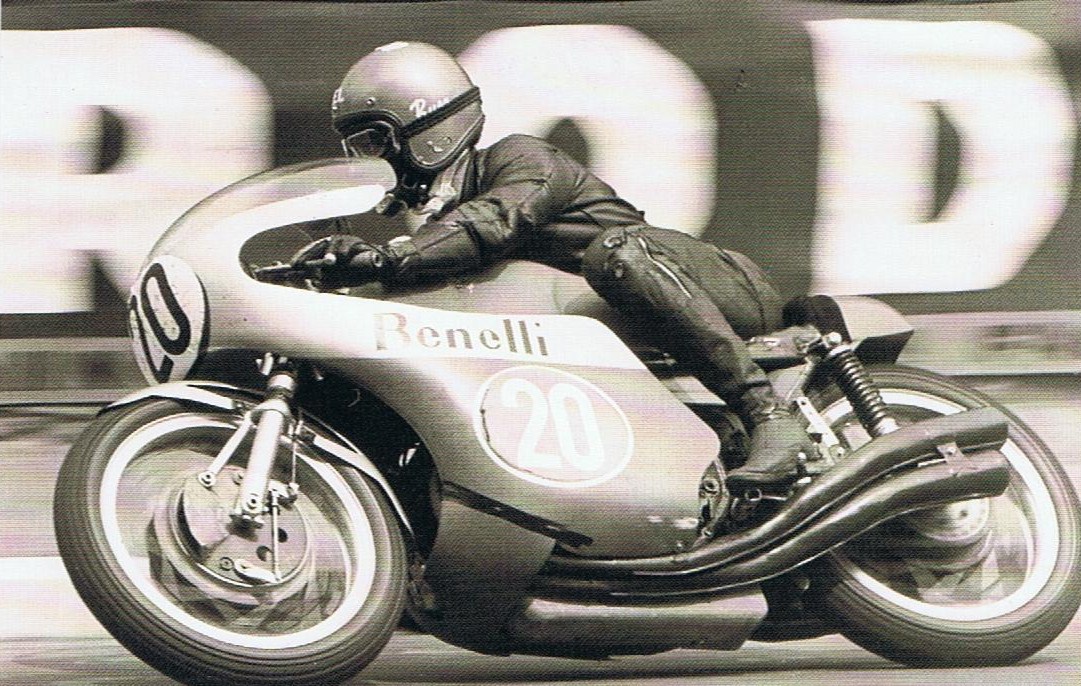
66. Marco Lucchinelli (Italy)
Lucchinelli stared racing in 1975 and his progression was rapid, finishing fourth overall in the 500cc World Championship just a year later. The next few seasons weren’t as profitable but in 1980 he finished third overall, after taking his fist win at the Nurburgring, and in 1981 he clinched the title with a dominant performance.
A lucrative switch to Honda followed but was ultimately successful but he went on to enjoy success with Ducati, firstly in the World F1 Championship and then the inaugural World Superbike Championship in 1988.
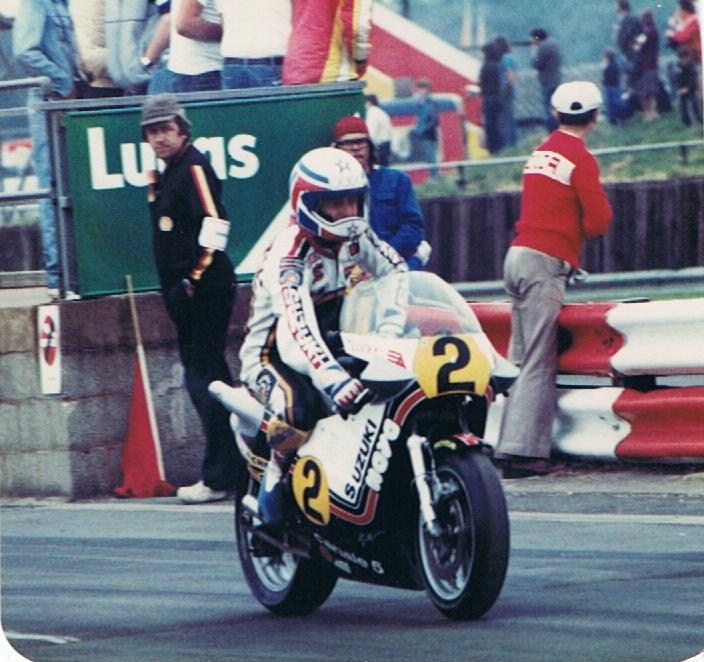
65. Christian Sarron (France)
Sarron burst onto the World Championship scene in 1977 when, riding for Gauloises Yamaha, he won the 1977 250cc German Grand Prix. Injuries wrecked the following seasons but by 1982 he was winning again and after finishing second to Carlos Lavado in the 1983 250cc World Championship, he captured the title the following year.
He then moved up to the 500cc class and although he only won one race in the premier category, he proved to be a major threat to the Americans who dominated the class in the 1980s.
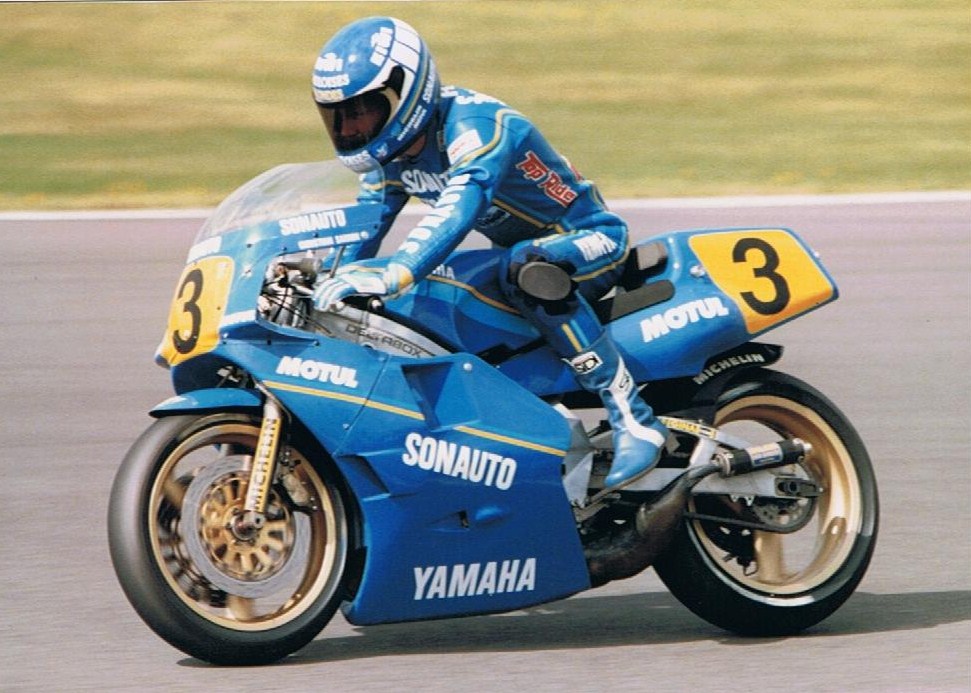
64. Hans-Georg Anscheidt (Germany)
German rider Anscheidt followed in the footsteps of his countryman Werner Haas by enjoying great success in the smaller GP categories. Having made an impression on Kreidlers, Anscheidt moved to the factory Suzuki team and took a hat-trick of 50cc World titles between 1966 and 1968.
63. Tetsuya Harada (Japan)
Harada won the 250cc World Championship at his first attempt in 1993 defeating Loris Capirossi. A wrist injury affected his performance in 1994, finishing 7th overall, but he bounced back in 1995 to claim second overall. A switch to Aprilia saw him finish third overall in both 1997 and 1998, the latter ending in controversial circumstances when team-mate Capirossi knocked him off thus denying him the title.
Harada then moved up to the 500cc class with Aprilia for two seasons, taking two podiums, before returning to the 250cc class in 2001 when he finished second overall once more. He retired at the end of the following season.
62. Renzo Pasolini (Italy)
Riding Benelli machinery for much of his career, Pasolini regularly challenged for the 350cc World Championship, finishing second overall in 1968 and third in both 1966 and 1970. A switch to Aermacchi gave even better results and he finished second in the 1972 250cc World Championship, only losing out to Jarno Saarinen by a point, and third once more in the 350cc class. Both machines were ultra-competitive, giving Pasolini a new injection in his racing but he sadly lost his life along with Saarinen in a terrible pile-up at the 1973 250cc Italian Grand Prix.
61. Ralf Waldmann (Germany)
Widely recognised as one of the best riders never to have won a World Championship, German rider Waldmann has the unenviable record of having won the most GPs (20) without taking a world title. Twice runner up to Max Biaggi in the 250cc World Championship, the German stood on the podium 50 times.
60. Pat Hennen (USA)
Hennen finished third in the 1976 500cc World Championship and became the first American to win a 500cc Grand Prix when he came first in that year’s Finnish Grand Prix. He finished third again in 1977, winning the British Grand Prix, and was top points scorer in the 1978 Transatlantic Trophy races.
The Californian was leading the 1978 500cc World Championship when he suffered a 150mph spill at the Isle of Man TT, just after he’d recorded the first ever sub-20 minute lap, and although he recovered from the serious injuries sustained, he was unable to race again.
59. Tom Phillis (Australia)
Having started racing in 1953, Phillis and his wife sold everything and came to Europe, soon establishing himself as one of the top privateers in Europe. In 1960, he became the first non-Japanese rider to be signed on by Honda, and was given rides in both the 125cc and 250cc Lightweight TTs. For 1961, Phillis concentrated on the 125cc and 250cc classes, giving Honda their first Grand Prix win in the 1961 125cc Spanish Grand Prix.
He went on to win the 1961 125cc World Championship thus being the first person to win a World Championship motorcycle race on a Japanese machine whilst he was also the first rider to lap the Isle of Man TT course at over 100mph on a pushrod engined motorcycle. Continuing with Honda in 1962, he started the season with three successive third place finishes in the 250cc category but died after crashing at Laurel Bank during the 350cc Junior TT.
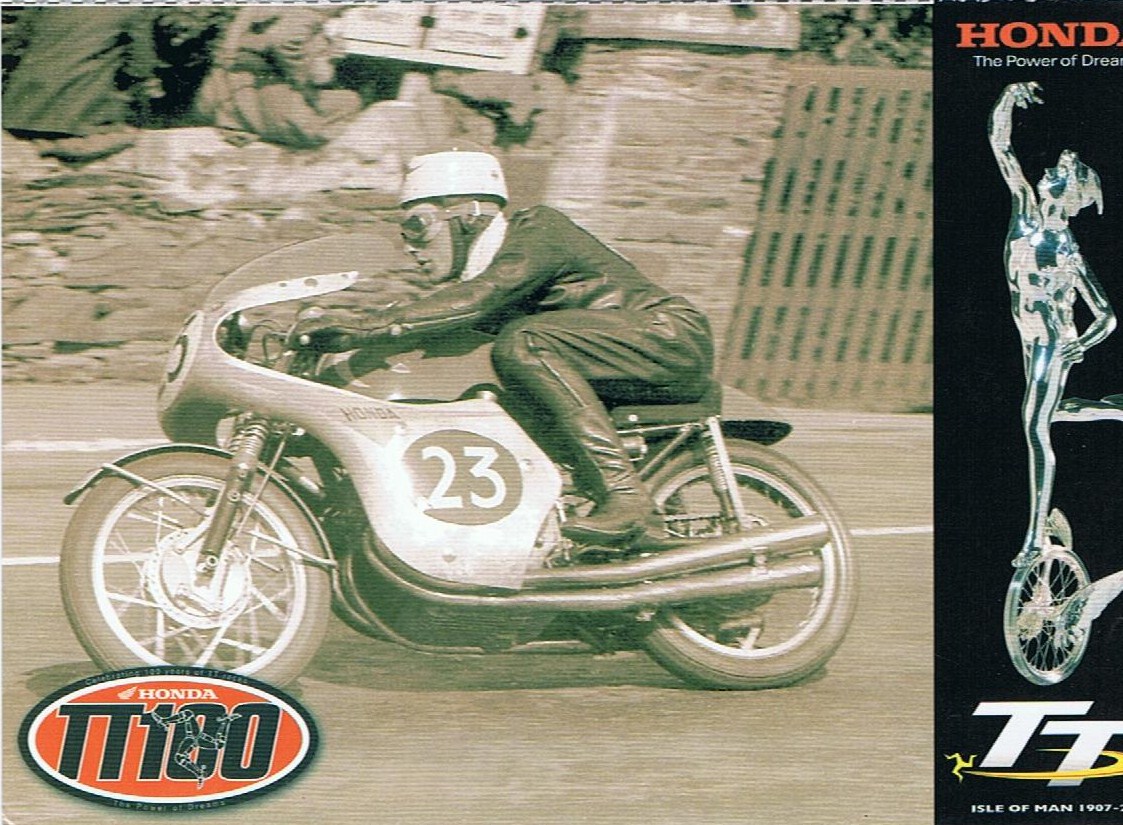
58. Ricardo Tormo (Spain)
Tormo won the 1978 50cc world championship riding a Bultaco and he repeated the feat in 1981. He also won four 125cc Grands Prix, finishing fifth in both the 1982 and 1983 world championships, was a three-time 50cc Spanish champion and four-time 125cc champion.
Alongside, Jorge Martinez he signed to ride for the factory Derbi team in 1984 but shattered his right leg when he hit a car at a private test session which ended his career. He died from leukemia in 1998 with the Valencia track in Spain being subsequently named after him.
57. Ernst Degner (Germany)
Degner’s first notable success came when he joined MZ in 1956 and he scored his first Grand Prix win in 1959. A year later he finished third overall in the 125cc World Championship, despite a heavy spill at the TT, and in 1961 he went head to head with Tom Phillis for the title. However, he famously defected to West Germany before the season was over, taking MZ’s two-stroke secrets with him to Suzuki and helping designing their 50cc and 125cc racers.
He gave the Japanese factory their first world title with the 1962 50cc Championship and although he was badly burned in a crash at Suzuka in 1963 continued to win races until he retired at the end of the 1966 season. Degner then moved to Tenerife where he died in 1983 under mysterious circumstances. Some suggest his death was due to an overdose, some due to a car crash but a persistent rumour was that he was murdered by the East German secret police to avenge his defection.
56. Fausto Gresini (Italy)
Gresini began racing in 1978 making his debut in the World Championship in 1983. He was soon snapped up by the works Garelli team and rewarded them with the 125cc world title in both 1985 and 1987 also finishing second in 1986.
Switching to Honda machinery, he also finished second overall in 1991 and 1992 and retired with a total of 21 GP victories and 47 podiums. Since retiring he has successfully ran his own Grand Prix team in all categories.
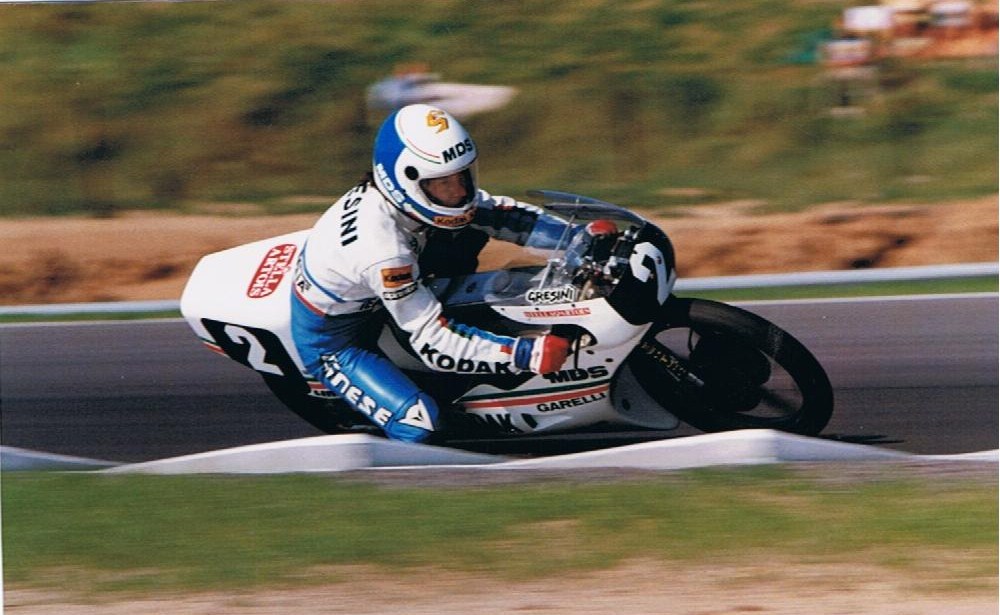
55. Troy Corser (Australia)
Riding for Ducati, Corser won the Australian and AMA Superbike Championships and then took second overall in the 1995 World Superbike Championship before taking the title one year later. An unsuccessful foray in the 500cc Grand Prix class followed and from 1998 until his retirement in 2011, he was an ever-present in the World Superbike series. He came close to a second title in 1998, before finishing third, a result he repeated the following year.
He then switched to Aprilia, giving them their first WSB win in 2000 but had to wait until 2005 to win his second world title, this time on Suzuki machinery. Another second place overall, this time on a Yamaha, came in 2008, before three relatively lacklustre years on BMW brought his career to an end but with 33 WSB wins and 130 career podiums to his name.
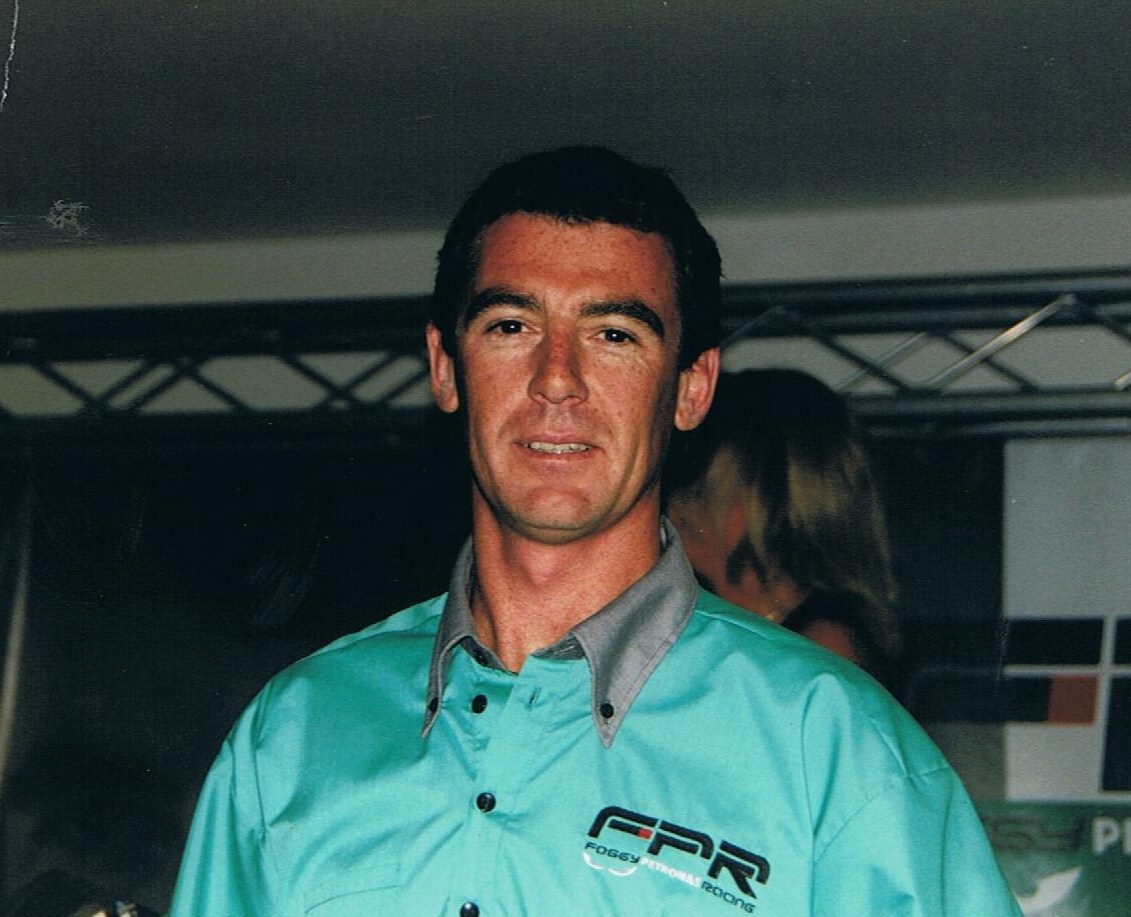
54. Doug Polen (USA)
After enjoying success on Suzuki in the American Superbike and Supersport Championships, Polen went on to become one of the finest ever World Superbike riders, winning the 1991 and 1992 titles in dominant fashion for Ducati. He won the AMA Superbike title in 1993 before returning to the World Superbike Championship in 1994 for Honda.
He also won the 1995 Suzuka 8-hour as well as the 1997 and 1998 World Endurance Championships, deservedly being inducted to the AMA Motorcycle Hall of Fame in 2011.
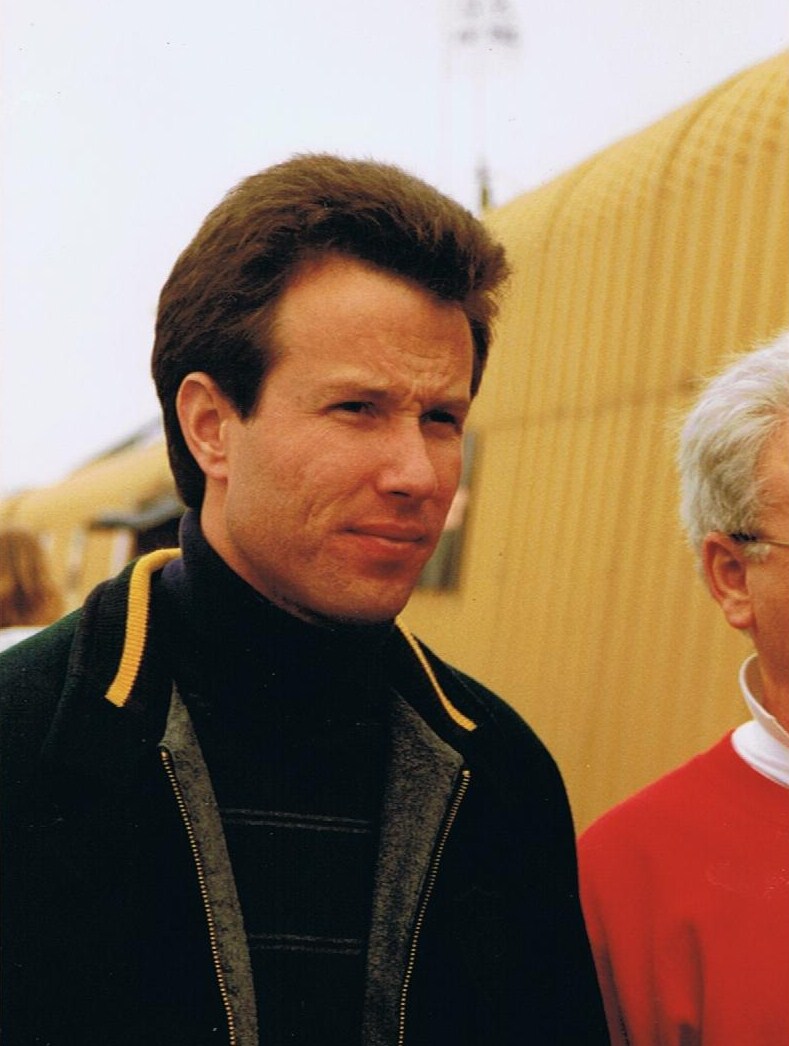
53. Randy Mamola (USA)
American rider Mamola is another of the sport’s best riders never to have won a world championship after finishing second in the 500cc championship on no less than four occasions. He rode factory machines for Suzuki, Honda, Yamaha and Cagiva giving the latter their first ever podium in 1988.
His final year of racing was 1992 but he has remained in the paddock since with activities including riding the two-seater Ducati Moto GP bike.
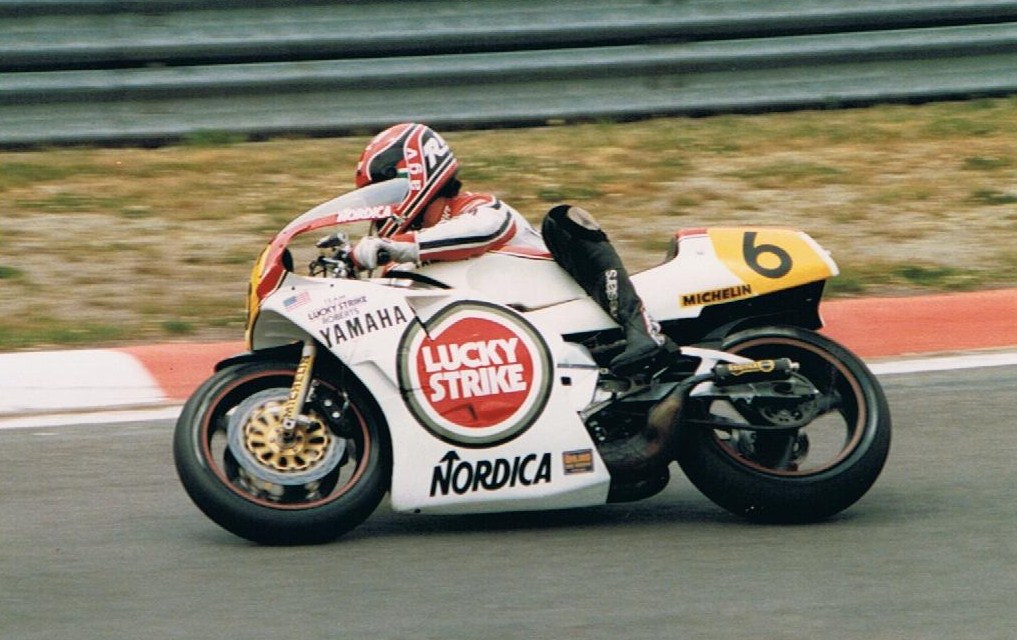
52. Andrea Dovizioso (Italy)
One of the most consistent riders of his generation, Dovizioso has been a permanent fixture in the Grand Prix paddock since 2002, winning the 125cc World Championship in 2004 and twice finishing second in the 250cc class in 2006 and 2007. Since 2008, he’s ridden in MotoGP for Honda, Yamaha and more latterly Ducati and now has a career total of 10 GP wins and 70 podiums.
51. Kent Andersson (Sweden)
Andersson began racing in 1962 and after winning his national 250cc Championship, he moved to the World Championships in 1965. However, it was when he switched to Yamaha when the results started to come and after finishing second overall in the 1969 250cc World Championship, he was promoted to the factory team.
Yamaha chose him to help develop their TZ125 race bike and he went on to claim the 1973 and 1974 125cc World Championships, also finishing third in 1975 when he retired to take up a role with Yamaha’s development team. He died aged 64 in 2006.
50. Werner Haas (Germany)
Haas’ career was brief but in a short space of time he established himself as one of Germany’s finest racers, becoming their first World Champion when he won the 1953 125cc and 250cc titles. Continuing with NSU machinery he repeated his 250cc success in 1954 but was killed in a light plane crash in 1956.
49. Sito Pons (Spain)
Pons started riding in the 250cc World Championship on a Cobas in the early 1980s but when it was when he joined forces with Honda in 1986 that the results really started to come. He went on to win the 1988 and 1989 World Championships before he moved into the 500cc class.
The success wasn’t as forthcoming and after retiring at the end of 1991, he formed his own successful team with riders including Max Biaggi, Loris Capirossi and Troy Bayliss.
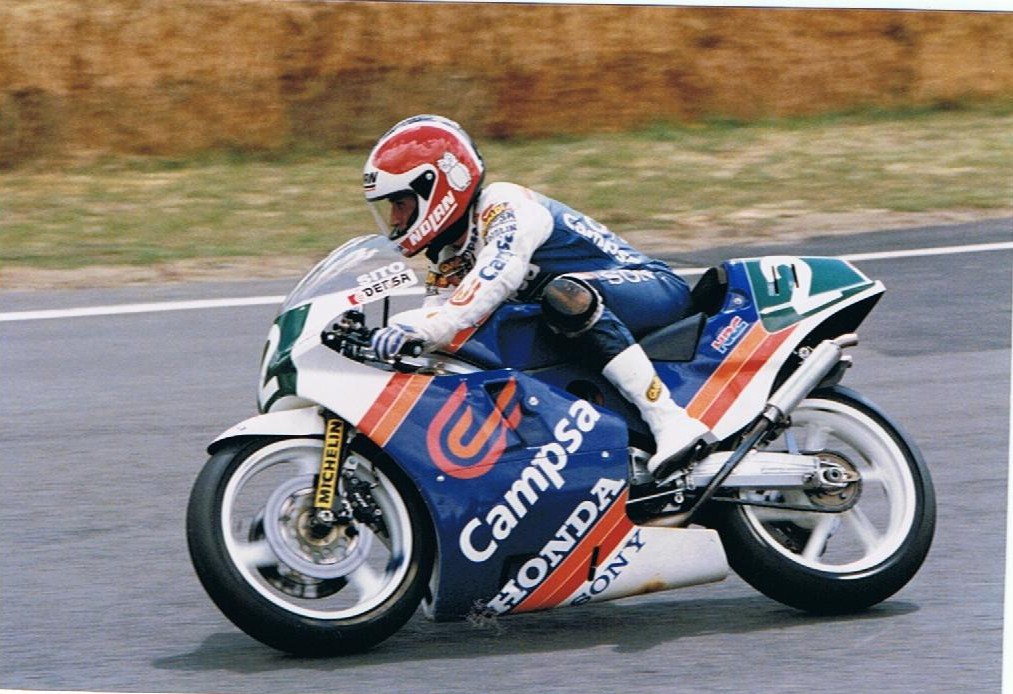
48. Stefan Dorflinger (Switzerland)
Swiss rider Dorflinger was recognised as ‘King of the Tiddlers’ in the 1980s, winning four consecutive World Championships. In 1982 and 1983, he was the 50cc world champion and when the FIM increased the capacity to 80cc in 1984, he became the first ever 80 cc world champion.
He successfully defended his title in 1985 and, in a GP career that spanned 18 seasons, he won 15 GPs in total and stood on the podium 58 times.
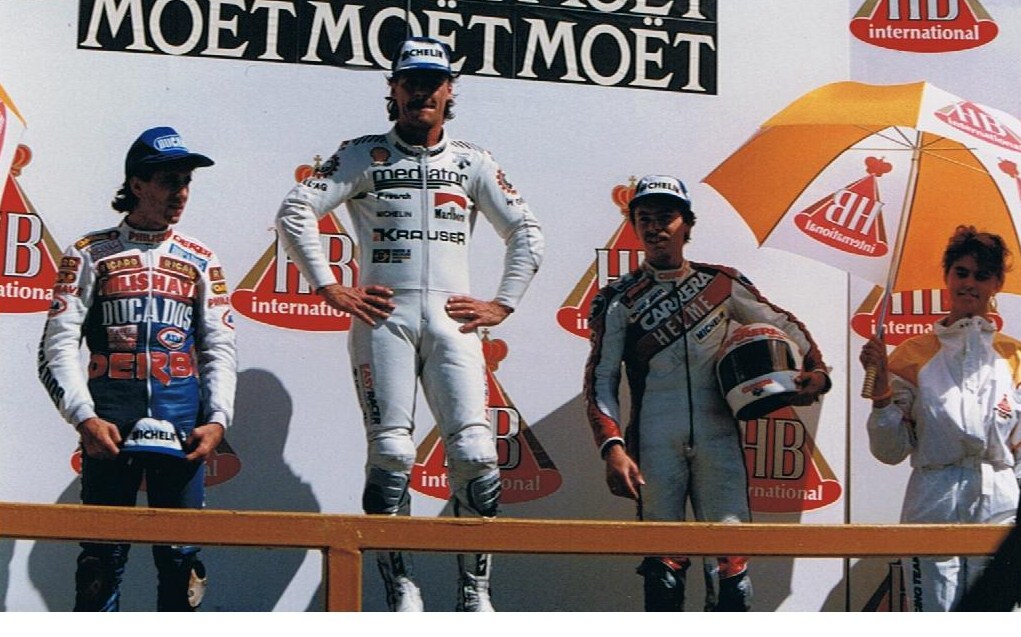
47. Pierpaolo Bianchi (Italy)
Bianchi was one of Italy’s leading riders in the 125cc World Championship for more than a decade and after playing second fiddle to team-mate Paolo Pileri in 1975, he won the title in both 1976 and 1977 for Morbidelli. He added another for MBA in 1980 and almost took a fourth in 1985 when he finished second after a year-long battle with Fausto Gresini.
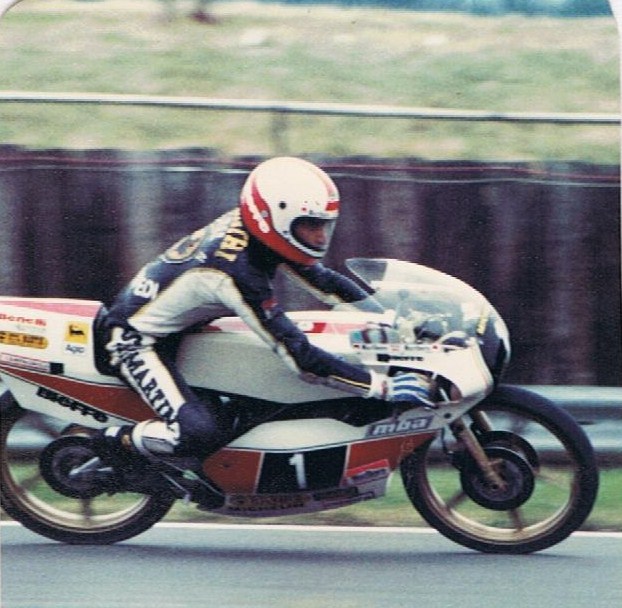
46. Eugenio Lazzarini (Italy)
Tiny Italian rider Lazzarini began his career in 1969 and won his first Grand Prix four years later. He took the 1978 125cc World Championship, also finishing second in 1977, 1982 and 1984 and followed that up with two 50cc World Championships in 1979 and 1980.
45. Cal Rayborn (USA)
Californian Rayborn began racing in 1964 and his prowess earned him a place with Harley Davidson where he went on to win two consecutive Daytona 200 victories in 1968 and 1969. He then made a major impression in the UK in 1972 when he competed in the Trans-Atlantic Match Races in England. Despite riding a relatively uncompetitive bike and on circuits he didn’t know, he won three of the six races.
At the end of 1973, Rayborn made the switch to Suzuki but was killed at Pukehoe, New Zealand when the bike’s engine seized.
44. Bruce Anstey (New Zealand)
A former New Zealand champion, Anstey is one of the greatest ever road racers, having finished on the podium at least once every year at the Isle of Man TT, North West 200 and Ulster Grand Prix since 2002. A former holder of the outright lap record at the TT, Anstey has won 31 International road races and stood on the podium 85 times. The Kiwi’s tally of 35 podiums at the TT is the third highest of all time.
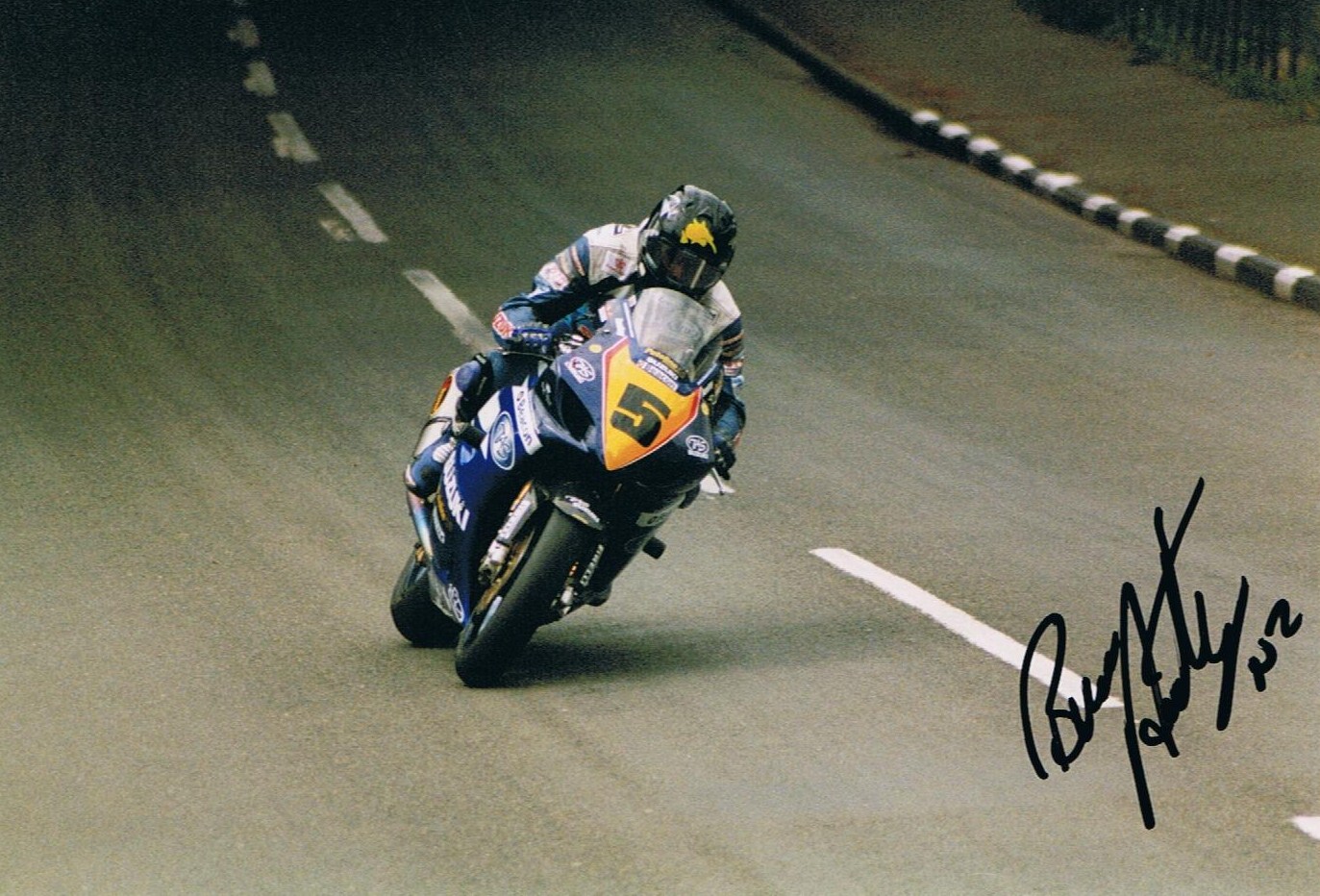
43. Gregg Hansford (Australia)
Riding for the factory Kawasaki team, Hansford finished 2nd in the 1978 250cc World Championship and third in the 350cc class, repeating those results in 1979. However, he suffered severe leg injuries in 1981 when his brakes failed at the Belgian Grand Prix at Spa when he hit a car that was illegally parked on a slip road.
The injuries forced his retirement from motorcycle racing but he then enjoyed a successful career in the Australian Touring Car Championships before losing his life in an accident at Phillip Island in 1995.
42. Daijiro Kato (Japan)
Having finished first and third, as a wild card in the 1996 and 1997 250cc Japanese Grand Prix races, Kato joined the series full time in 2000 and won four races that year to clinch third overall. In 2001, he dominated the 250cc championship winning 11 races, a record in the class, on his way to the title and it paved the way to a move into the MotoGP category.
Riding both the NSR500 and then the four-stroke RC211V, he finished a solid seventh overall in 2002 but hopes of going better in 2003 were ended when his career was tragically cut short when he was killed at his home Grand Prix. As a result, Suzuka has never hosted a motorcycle GP since.
41. Marco Simoncelli (Italy)
Simoncelli competed in the world championships from 2002 until 2011 and after winning races in the 125cc category, he moved up a class to the 250’s, riding works Gileras for four seasons. After two learning years, he came to the fore in 2008, dominating the Championship with six wins and 12 podiums for his first world title.
He had to settle for third overall in 2009 but he was already planning a move to MotoGP and finished eighth overall in 2010. He took his first podiums in the class in 2011 and look destined to challenge for the world championship but was tragically killed at the Malaysian Grand Prix that year.
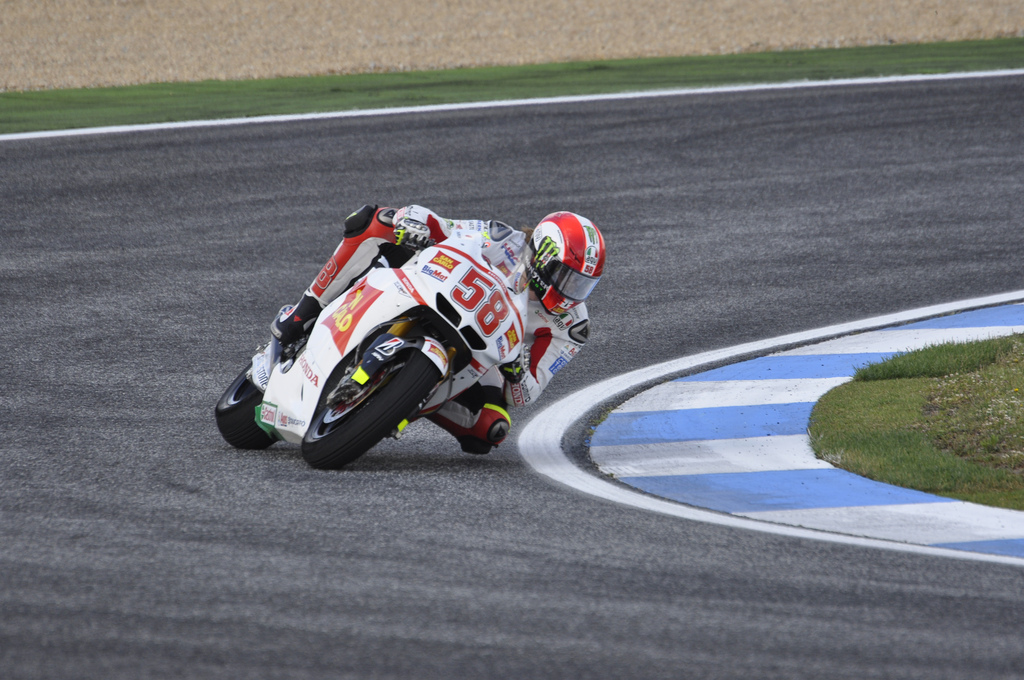
40. Alex Criville (Spain)
Crivillé started his international career in the 80cc World Championship for Derbi, finishing second overall in 1988, but he moved up to the 125cc class in 1989, winning the world championship for JJ Cobas. Two seasons in the 250cc class followed but from 1992 onwards, he was a front runner in the 500cc class.
Riding the Honda NSR 500 from 1992 until his retirement at the end of 2001, Criville won his first 500cc GP in 1992 and although he had to play second fiddle to Repsol team-mate Mick Doohan for much of the time, finishing second overall to the Australian in 1996 and third in 1998, six wins in 1999 saw him clinch the world Championship.
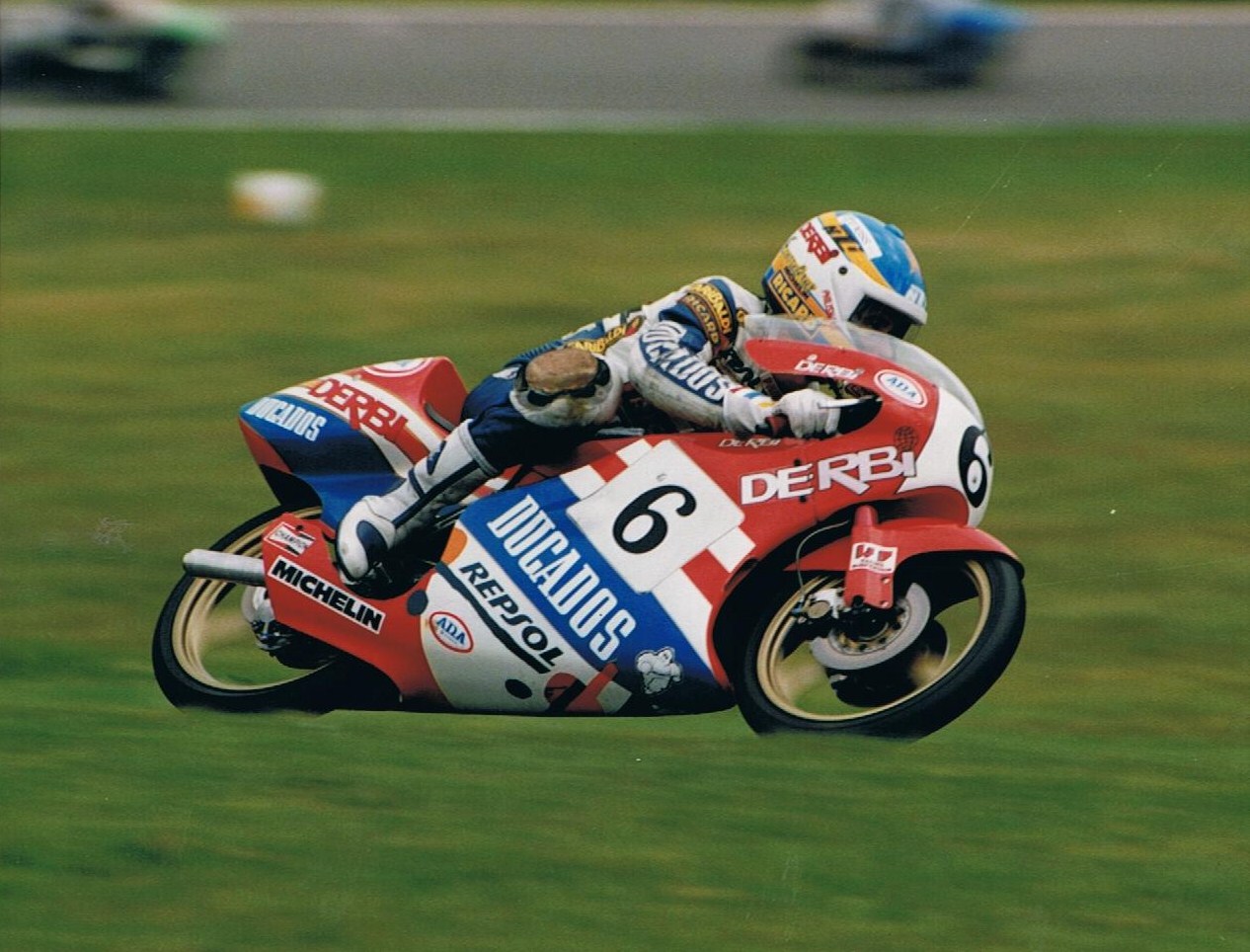
39. Marco Melandri (Italy)
Melandri was introduced to racing by Loris Reggiani and enjoyed a brilliant debut season in the 1998 125cc World Championship, winning two Grand Prix and finishing third overall also becoming, at the time, the youngest ever Grand Prix winner. He won five races in 1999, this time finishing second overall to Emilio Alazmora by just a point. Three seasons with Aprilia in the 250cc category followed culminating in the world championship in 2002
After securing the title, he then spent eight successive years in MotoGP, riding for Yamaha, Honda, Ducati and Kawasaki, his best year coming in 2005 when he claimed second overall. In 2011, he moved into the World Superbike Championship and between then and 2014 he never finished outside of the top four in the Championship taking 19 wins and 49 podiums.
38. Walter Villa (Italy)
Quiet and unassuming off the track, Villa was a ruthless competitor on it and enjoyed his greatest success on Harley Davidson machinery in the 1970s after the American giant had bought the ailing Aermacchi factory. Their decision to recruit Villa proved a wise one as he took a hat-trick of 250cc World Championships between 1974 and 1976.
He also took the 350cc title in 1976 and eight Italian Championships before retiring at the end of the 1980 season. He passed away at the age of 58 in 2002 after suffering a heart attack.
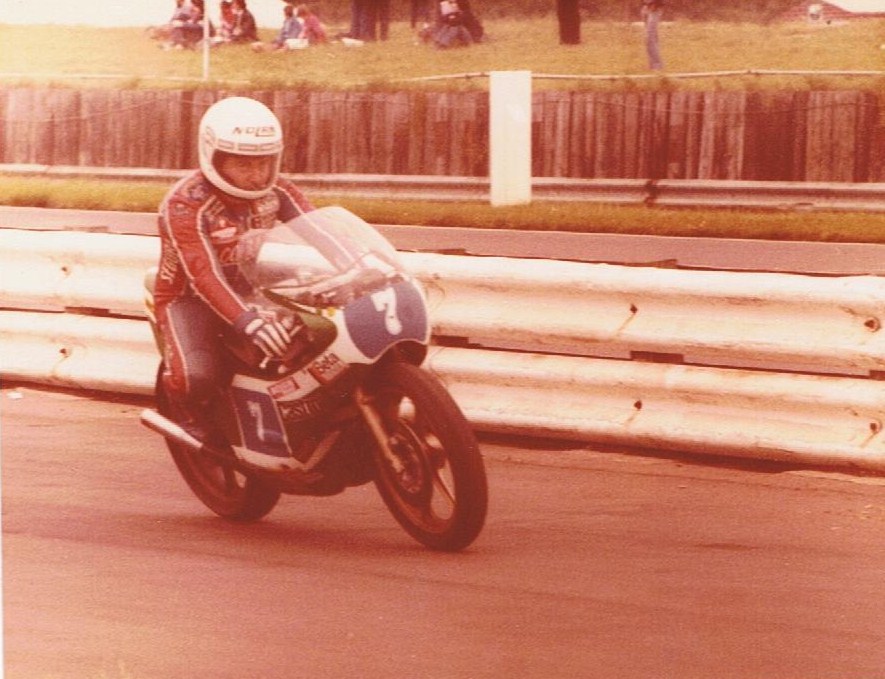
37. Steve Baker (USA)
Having been a three-time Canadian champion, Baker first came to prominence in Europe with some stunning rides on a TZ750 Yamaha in the annual Transatlantic Trophy races and his good results earned him a factory ride with Yamaha for 1977. He began the year with victory at the Daytona 200 and went on to win the 750cc World Championship, becoming the first American to win a road racing world championship in the process.
He also finished second to Barry Sheene in that year’s 500cc world championship before being replaced by Kenny Roberts for 1978. He carried on with a privately entered RG Suzuki but a terrible accident at Mosport, Canada at the end of the season left him with a broken arm and shattered leg and ultimately led him into retirement.
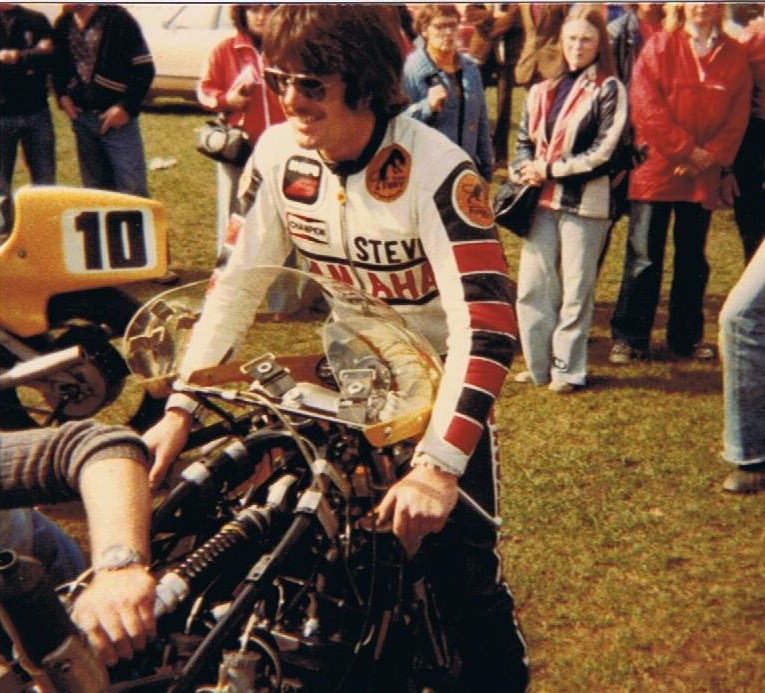
36. Johnny Cecotto (Venezuela)
Cecotto is one of the few people to have competed in both motorcycle and Formula One Grands Prix but it’s his performances, albeit briefly, on two wheels that he’s best remembered for. The Venezuelan finished third, aged just 19, in the 1975 Daytona 200 and having moved to Europe, went on to win the 350cc World Championship at his first attempt, beating Giacomo Agostini in the process.
A year later, he won the Daytona 200 and finished second in the 350cc World Championship after a close battle with Walter Villa. Badly injured in an accident at the 1977 Austrian Grand Prix, Cecotto moved onto the 500cc and 750cc machines on a full time bases in 1978 and although he won races on the former, his best finish overall was fourth in 1978 although he did win the 750cc World Championship that year.
A badly broken kneecap in 1979 ultimately saw him quit bikes at the end of 1980, going on to enjoy success firstly in Formula One and then World Touring Car and German DTM Championships.
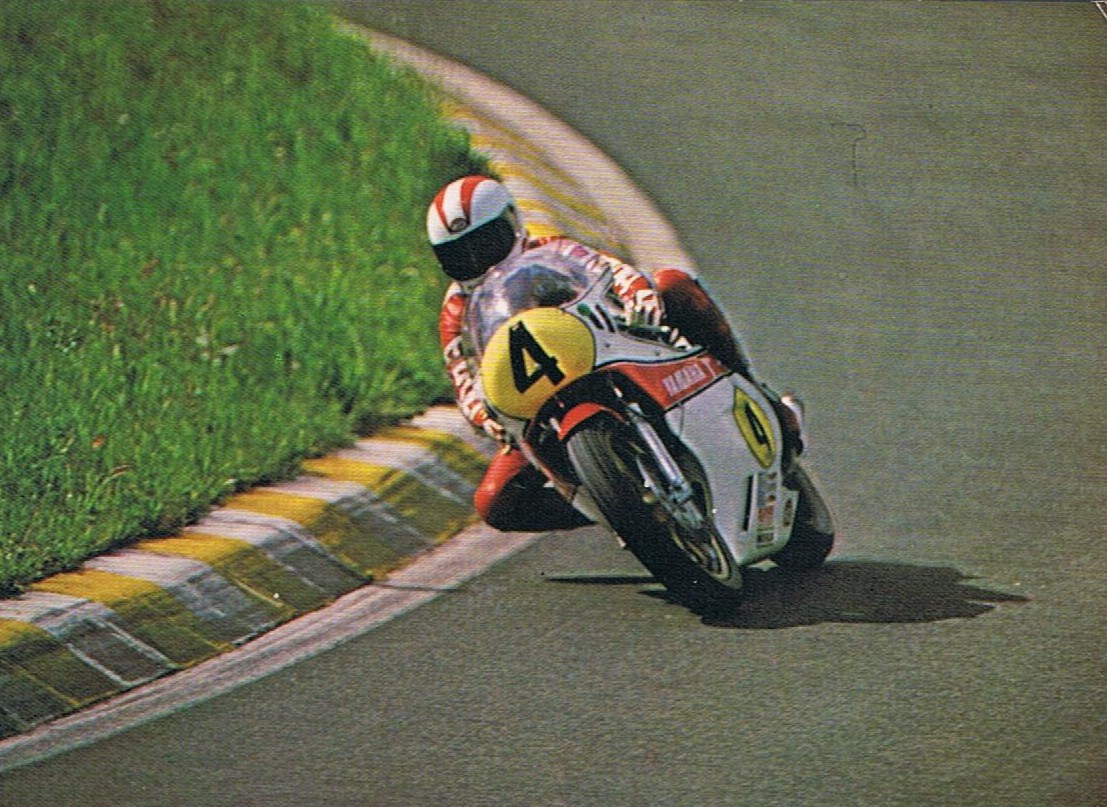
35. Graeme Crosby (New Zealand)
Crosby began his racing career in 1974 before coming to Europe in 1979 and he went on to achieve the unique feat of winning the Daytona 200, Imola 200, Suzuka 8 Hours and Isle of Man TT, the latter on three occasions. He had two seasons in the 500cc World Championship riding for Heron Suzuki and finished fifth in 1981, a year that also saw him win the Formula One and Classic TT races.
He then joined the factory Yamaha team for the 1982 season when, after winning at Daytona and Imola, he finished second in the 500cc World Championship. However, frustrated by the internal politics of his race team Crosby quit the Grand Prix circuit after the 1982 season.
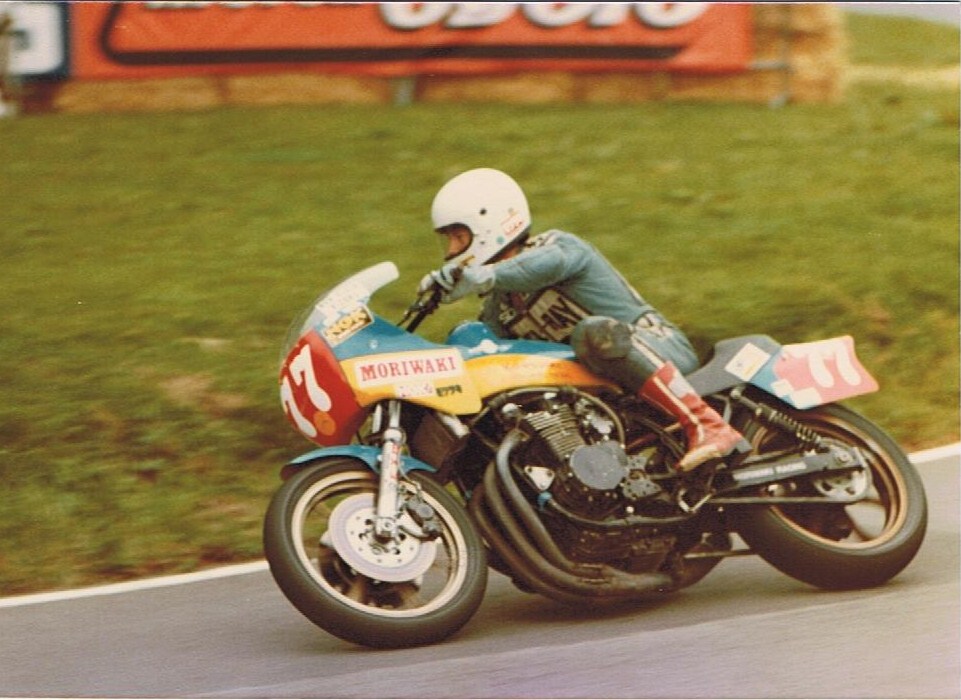
34. Takazumi Katayama (Japan)
Katayama first came to Europe in 1974 and he was immediately successful taking a win at Sweden and three podiums in total on his way to finishing fourth in the 250cc World Championship. He improved to second overall in 1976, when he also took second on his debut at the Isle of Man TT, and then became the first Japanese rider to win a motorcycle world championship when he claimed the 1977 350cc World Championship on a Yamaha.
He would countless have claimed more titles had he not decided to accept an offer from Honda to develop their exotic oval-cylinder, four stroke NR500. He essentially lost three seasons of his career but, switching to the NS500 in 1982 he won in Sweden, before eventually retiring at the end of the 1985 season.
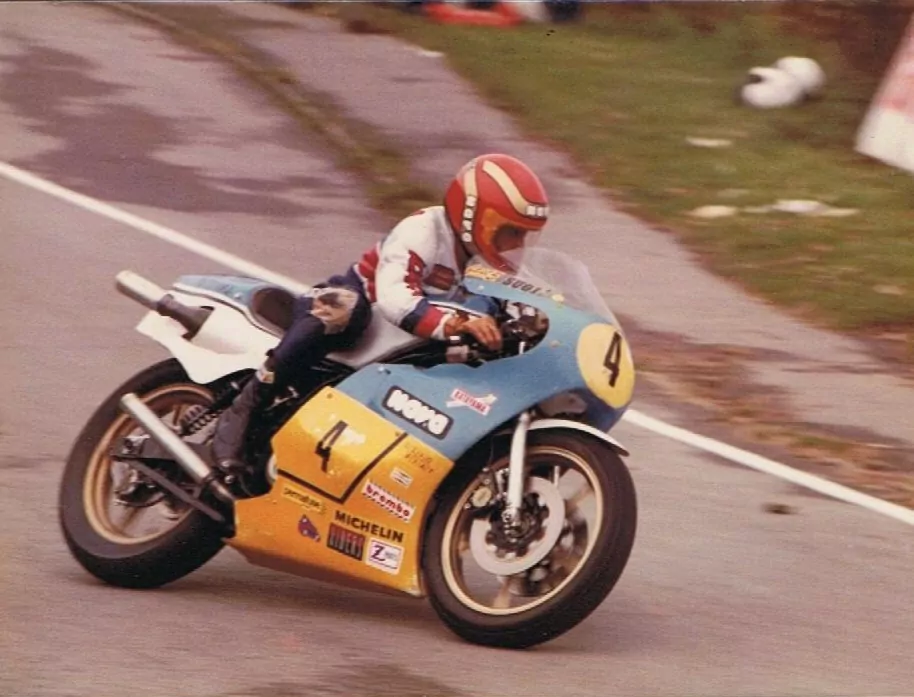
33. Carlos Lavado (Venezuela)
Lavado made his international racing debut in the 1978 Venezuelan Grand Prix, finishing second in the 250cc class and, a year later, won the 350cc class at the same meeting. In 1980, he began competing full-time on the Grand Prix circuit and, riding Yamaha machinery, became one of the finest 250cc racers of his generation, winning the World Championship in both 1983 and 1986.
A hard charger, Lavado took 19 GP wins and 42 podiums in total and, along with Johnny Cecotto, is one of only two Venezuelans to win Grand Prix titles.
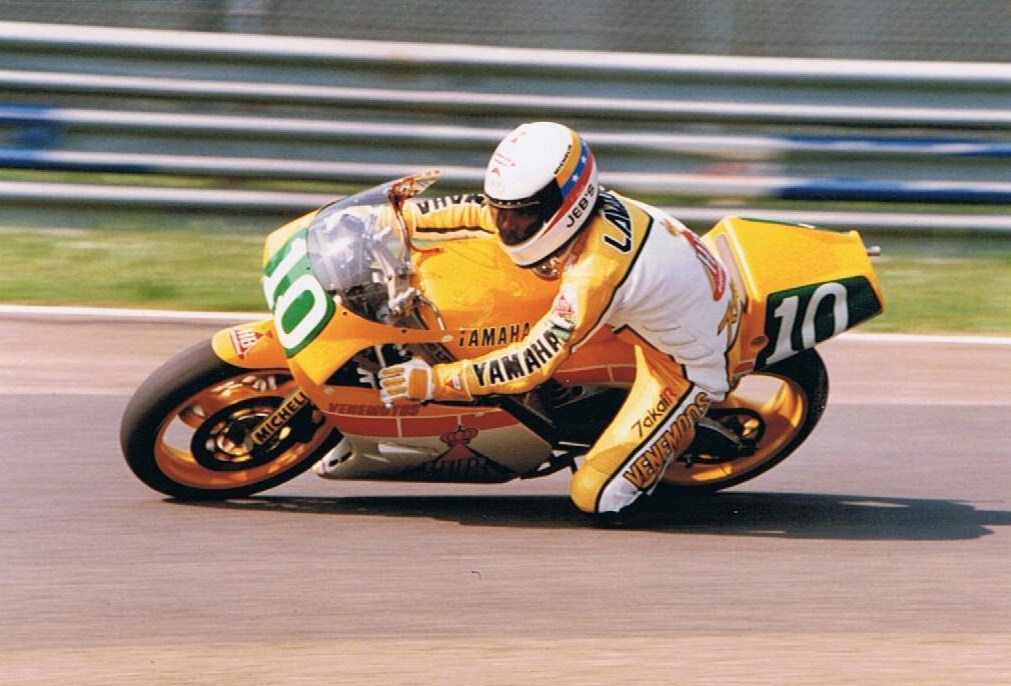
32. Jon Ekerold (South Africa)
Born in 1946 in Johannesburg, Ekerold was renowned for being one of the hardest men in racing and went down in history as the last rider to win a World championship as a privateer – without the benefit of a motorcycle manufacturer’s support – when he defeated Kawasaki’s Anton Mang for the 1980 350cc World Championship.
Ekerold rode a self-modified Yamaha TZ350 engine in a Bimota chassis during his championship season and was also extremely successful on the roads winning at the 1978 Ulster Grand Prix and taking two second place finishes at the 1982 Isle of Man TT races.
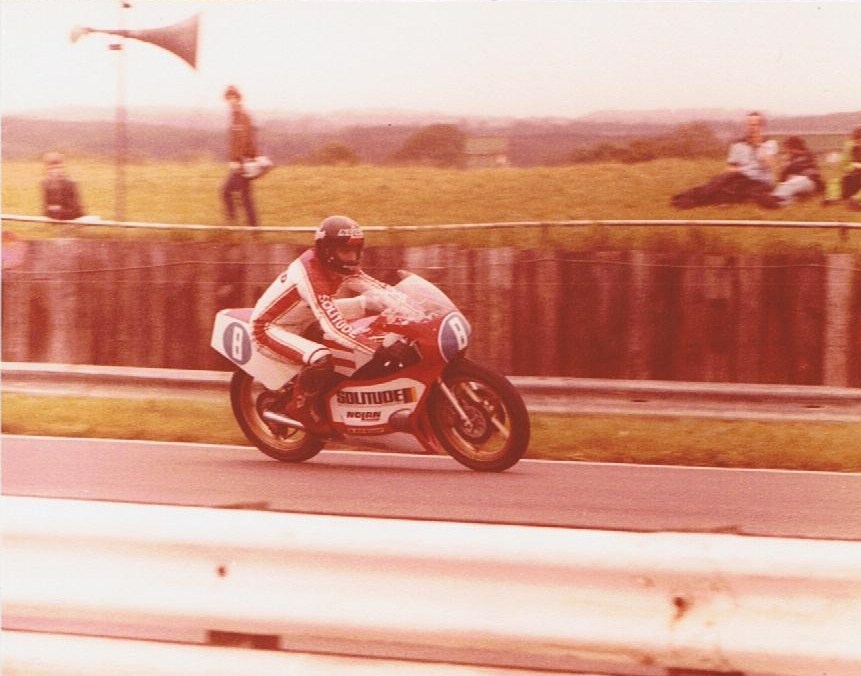
31. Colin Edwards (USA)
Edwards won the 1992 250cc AMA Championship and two years in AMA Superbikes for Yamaha followed before he headed to Europe in 1995 for the World Superbike Championship. A move to Honda in 1999 paved the way for greater success and after finishing second on the RC45 in 1999, he won the 2000 world championship on the new VTR-1000 SP1. Second overall was again the outcome in 2001 but he reclaimed the title from Troy Bayliss in 2002 after a thrilling ‘winner takes all’ final race.
From 2003 until his retirement in 2014, Edwards contested the MotoGP world championship for, amongst others, the factory Aprilia, Yamaha and Honda teams and although he never won a race, he finished on the podium 12 times with his best year coming in 2005 when he finished fourth overall.
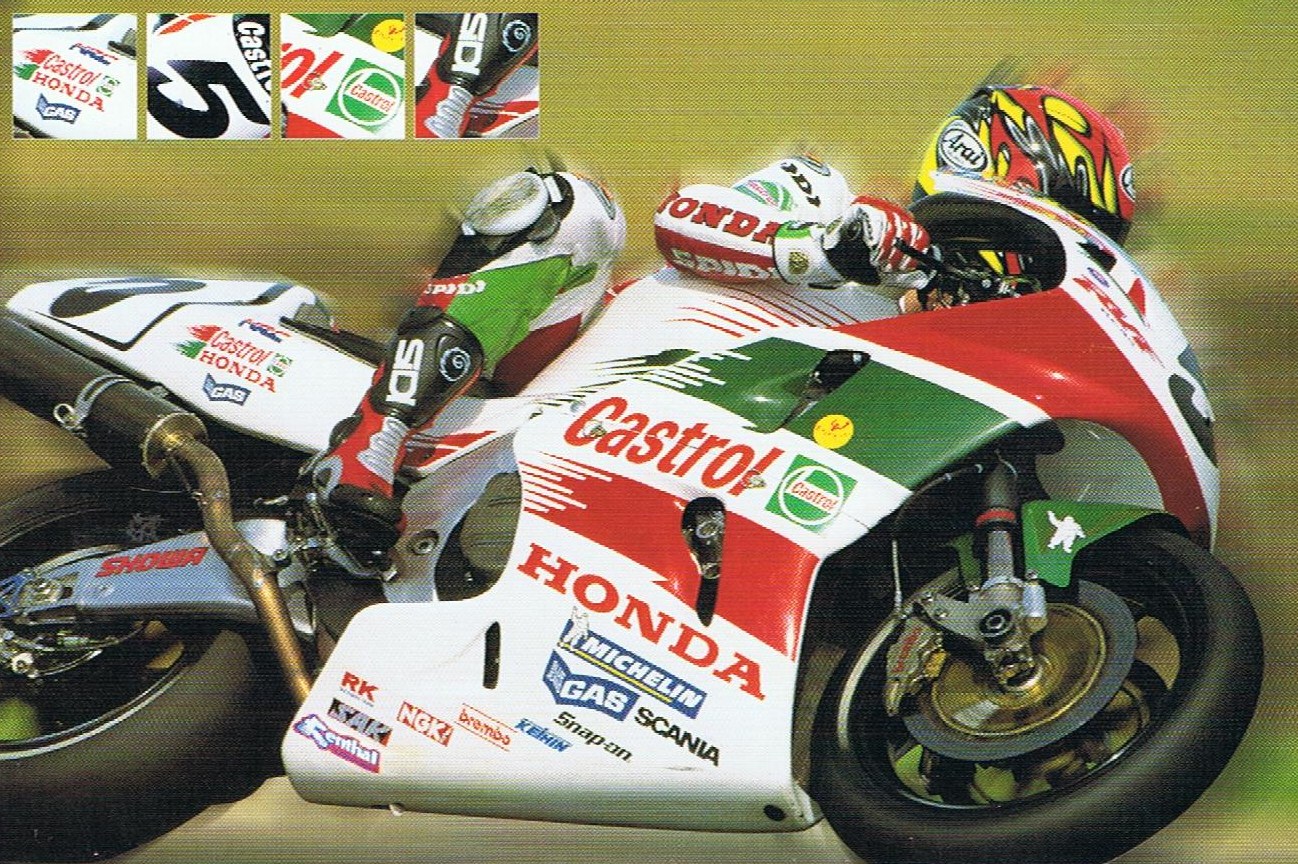
30. Luca Cadalora (Italy)
Cadalora first came to prominence when he won the 1986 125cc World Championship for Garelli and his success saw him move up to the 250cc class for the next six seasons, three for the factory Marlboro Yamaha team and three for Rothmans Honda. It was the latter where he was most successful, winning the title in both 1991 and 1992.
In 1993, he moved up to the 500cc class and spent three seasons with Kenny Roberts’ Yamaha team, finishing second overall in 1994 and third in 1995. Third overall was also the outcome in 1996, this time on an Erv Kanemoto prepared NSR500 Honda before he returned to Yamaha in 1997, taking fifth overall. It proved to be his swansong as although he had occasional outings over the next few seasons, he finally retired at the end of the 2000 season.
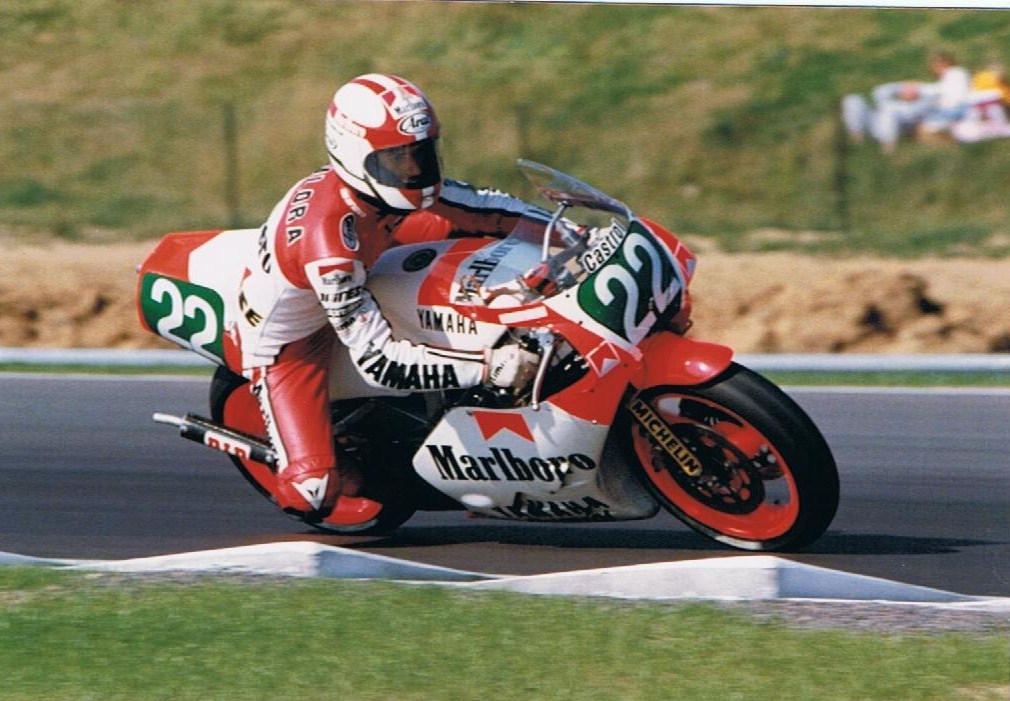
29. Hugh Anderson MBE (New Zealand)
Born in 1936, Kiwi ace Anderson came to Europe in the late 1950s and joined the factory Suzuki team in 1961 primarily racing in the 50cc and 125cc categories. During his team membership, Anderson was 50cc and 125cc World Champion in 1963 and retained his 50cc World title the following year.
In 1965 he was crowned 125cc World Champion with his last ride for Suzuki coming in October 1966. He also won two races at the Isle of Man TT. Anderson was made an MBE in 1994 and, a year later, was inducted into the New Zealand Sports Hall of Fame.
28. Ray Amm (Rhodesia)
Another brilliant road racer to emerge from Southern Rhodesia, Amm started racing at the age of 17 and left for Europe at the beginning of the 1951 GP season. Third in the 1952 Senior TT led to him becoming a member of the factory Norton team and the faith shown in him by the British manufacturer was seen in 1953 when he won both the Senior and Junior TT races. He also finished third in the 350cc world championship for the second successive year.
1954 saw him take second overall in both the 350cc and 500cc world championships, winning the Senior TT in somewhat controversial style after the race was stopped early at the end of the fourth lap. Having had previous opportunities to leave Norton, Amm finally accepted MV Agusta’s offer for the 1955 season but tragically lost his life at Imola on Easter Monday in his first ever race for the Italian team.
27. John Kocinski (USA)
At just 17, Kocinski was a factory rider for Yamaha, winning the AMA 250cc Championship from 1987 to 1989. Selected Grand Prix outings in both 1988 and 1989, winning two races in the latter, led to a full time campaign in 1990 and he won the world title at his first attempt, immediately progressing to the 500cc Championship. He won races in the premier category but never the championship, his best year being 1994 when he finished third overall.
After a year’s retirement, he returned in 1996 to the World Superbike Championship, finishing second overall for Ducati. A switch to Honda followed and he won the title with nine wins and 16 podium finishes and this led to a return to the 500cc GP series, retiring at the end of the 2000 season.
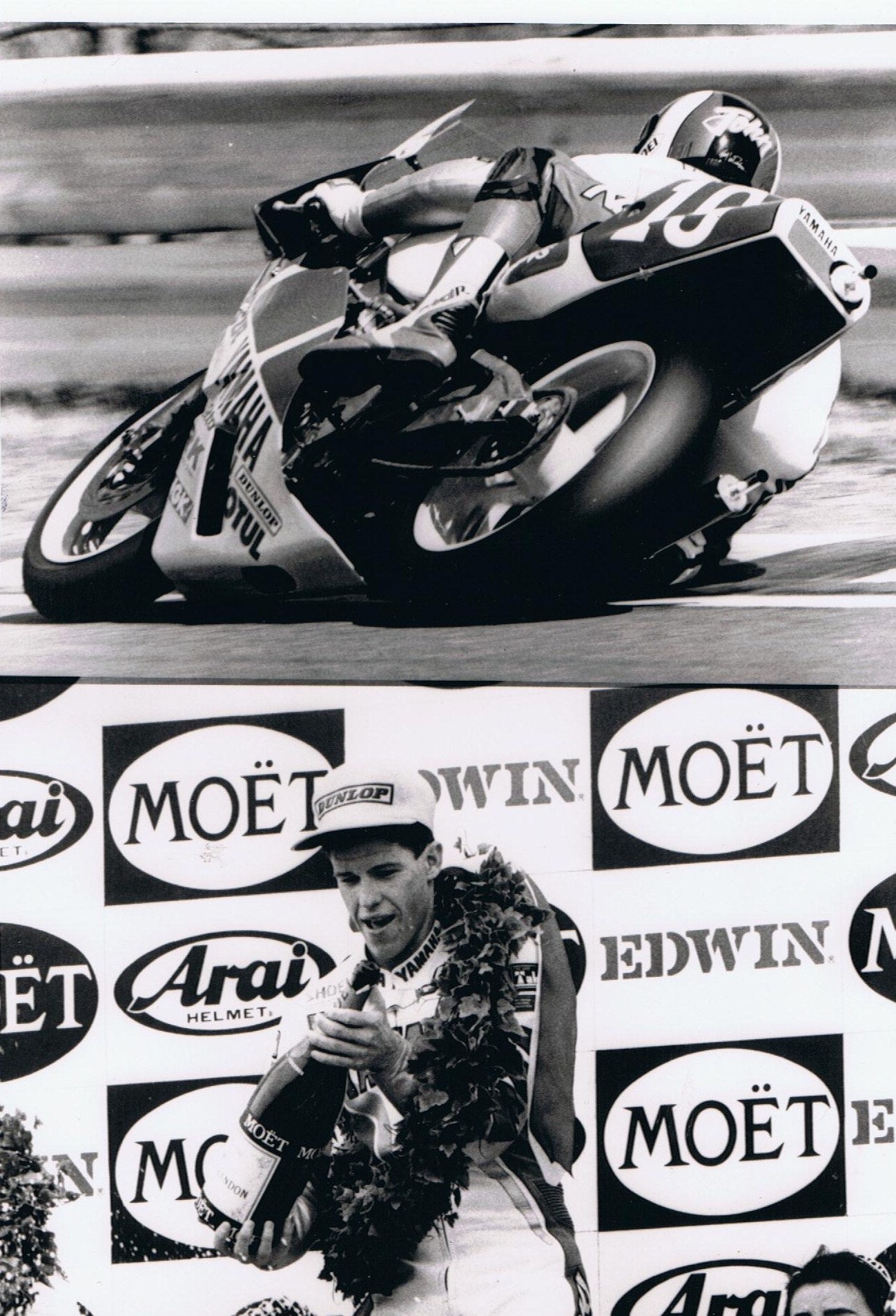
26. Luigi Taveri (Switzerland)
Diminutive in stature, Swiss rider Taveri made his World Championship debut in the 500cc class in 1954 but he found greater fame in the smaller capacity classes, winning three 125cc World Championships for Honda in 1962, 1964 and 1966. He also took three wins at the TT and during his illustrious career he rode factory bikes for MV Agusta, Ducati, MZ, Kreidler and, finally, Honda. He retired at the end of the 1966 season.
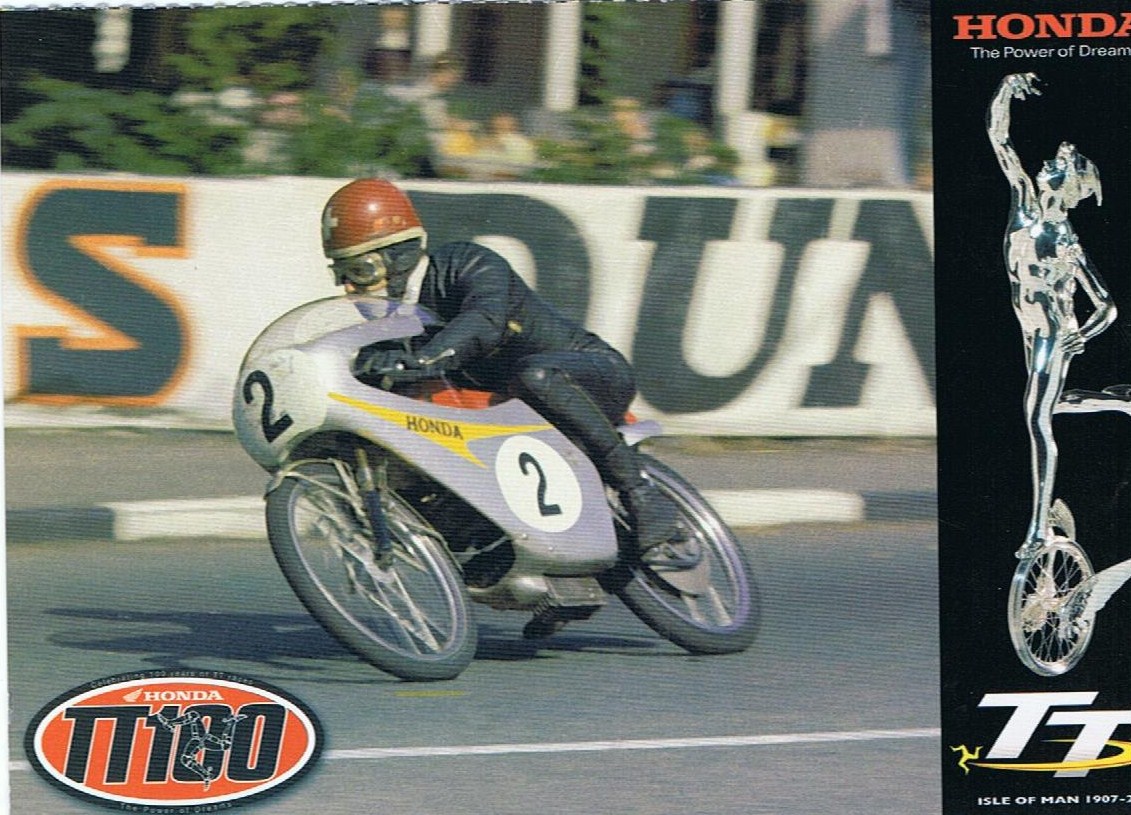
25. Tarquinio Provini (Italy)
Provini started racing motorbikes at the age of 10 and made his Grand Prix debut in 1954, winning the Spanish Grand Prix at the end of the year. His first world title came in 1957 when he rode a Mondial in the 125cc World Championship and when they withdrew at the end of the year, he moved to MV Agusta where he had many a titanic battle with Carlo Ubbiali.
He added another World title, the 250cc, in 1958 and although MV withdrew at the end of 1960, Provini only narrowly missed out on the 1963 250cc World Championship when his Morini was locked in a season-long battle with Jim Redman’s Honda. A broken back sustained at the 1966 TT Races ended his career and he passed away in 2005, aged 71.
24. Jorge Martinez (Spain)
Having first entered a World Championship race in 1982, Martinez soon proved himself to be a master of the 50cc, 80cc and 125c classes, just like his countryman Angel Nieto before him. Between 1986 and 1988 he won four world titles in total, three in the 80cc category and one in the 125cc.
His last GP win was in 1992 but he carried on racing until 1997 before creating and managing his own team, something he still does to this day. Numerous riders have won World titles riding for Aspar’s team, which competes in all three Grand Prix disciplines.
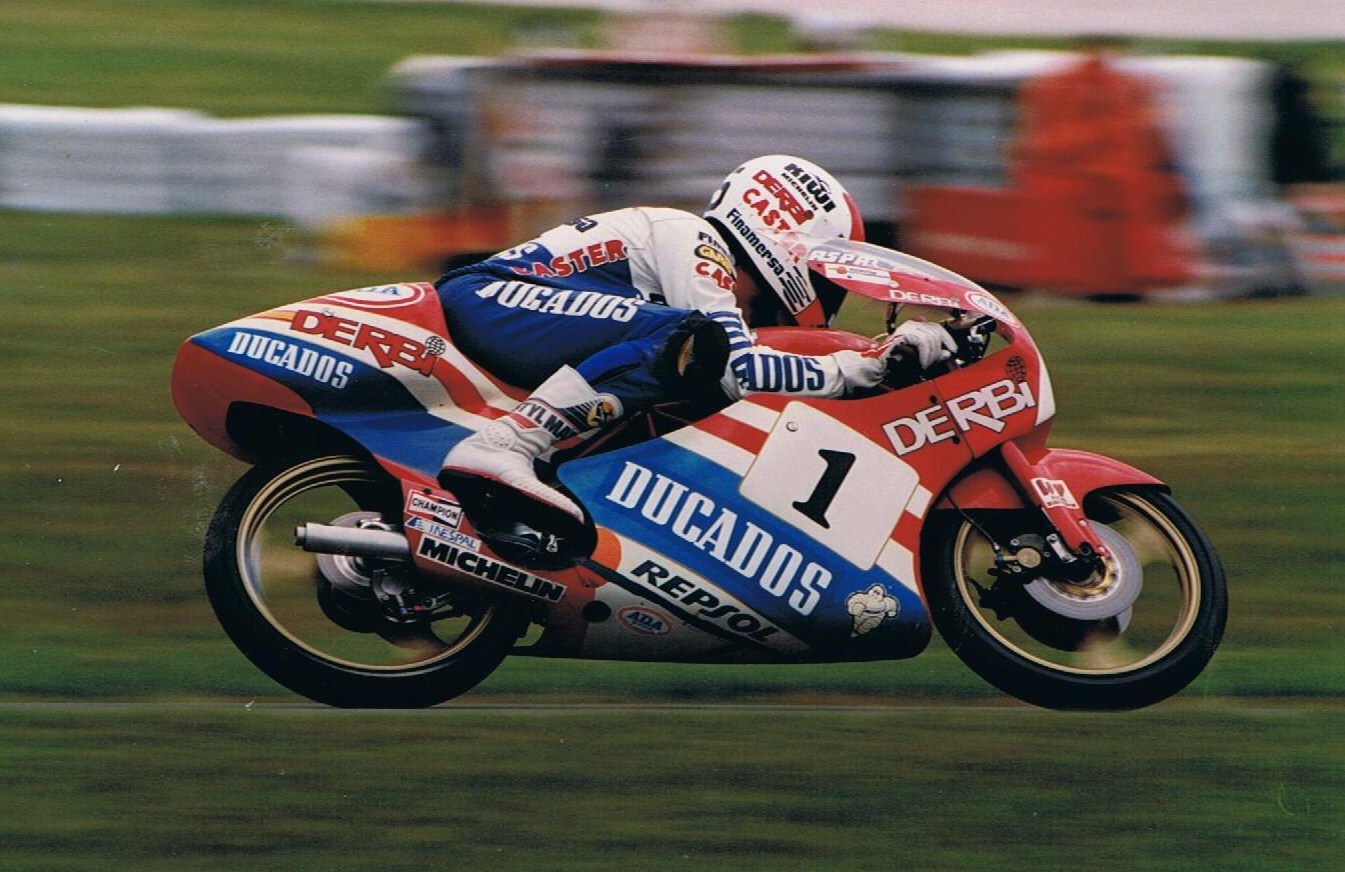
23. Loris Capirossi (Italy)
Capirossi had one of the longest careers in modern Grand Prix racing competing in the world championships from 1990 until 2011 and was the first rider to make at least 300 starts. He made his Grand Prix debut in 1990 and won the 125cc world championship aged just 17, repeating the feat the following year, which paved the way to a move up to the 250cc class for three years, finishing second overall in 1993 and third in 1994 on Hondas.
Two average years in the 500cc class followed before he returned to the 250cc class in 1998, winning his third world title this time on an Aprilia. He was back in the premier 500cc/MotoGP category in 2000 where he rode factory Honda, Ducati and Suzuki machines with his best years coming in 2001 and 2006 when he claimed third overall. In total, Capirossi won 29 races and stood on the podium 99 times.
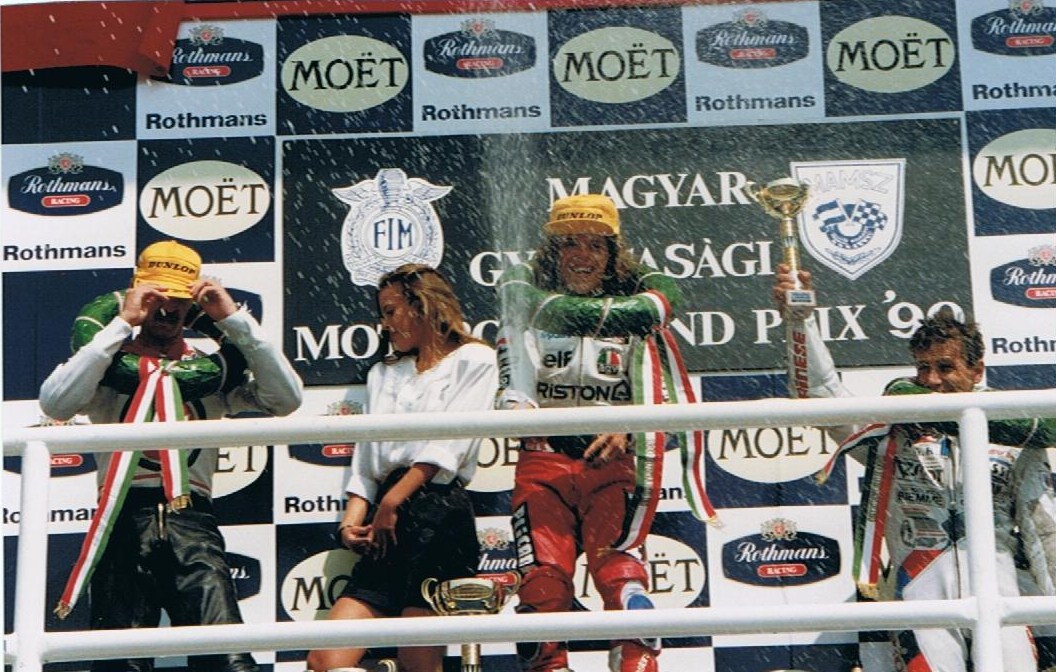
22. Wayne Gardner (Australia)
Gardner began his racing career in 1977 and after moving to Britain in 1981, his career really took off when he was signed by Honda Britain. His 500cc Grand Prix debut came in 1983 and two years later, he was riding full time for the Rothmans Honda team. In 1986, he took his first Grand Prix and ended the year in second overall to Eddie Lawson.
A year later, the Honda was the best bike on the grid and Gardner became the first Australian to win the 500cc World Championship with seven wins from the 16 wins. A year later he took second overall and went on to win the inaugural Australian Grand Prix in 1989. A hard, tough rider, injuries hindered his subsequent campaigns and he retired at the end of the 1992 season. He also won the Suzuka 8-hour race on four occasions.
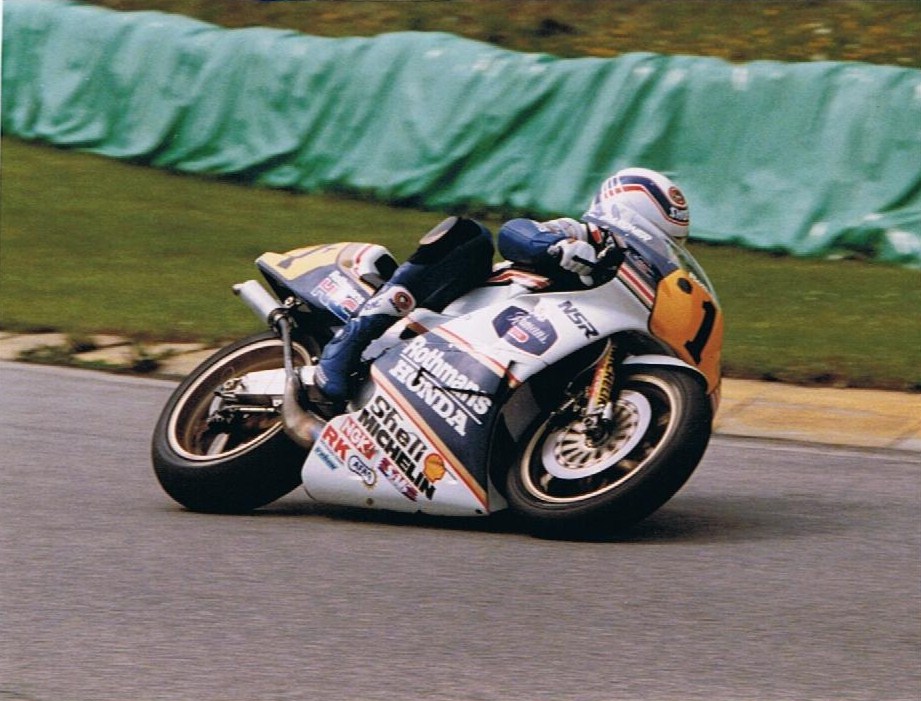
21. Kork Ballington (South Africa)
After success in his native South Africa, Ballington enjoyed success in firstly the British and then World Championships on production 250cc and 350cc Yamahas. Victories were taken and it earned him a place in the factory Kawasaki team for 1978 where won the 250cc and 350cc World Championships.
He repeated his success the following year before joining Kawasaki’s efforts on the 500cc class although the KR500 wasn’t as successful as the smaller machines. Ballington retired from GP competition at the end of 1982 before enjoying further success in America. He now resides in Australia.
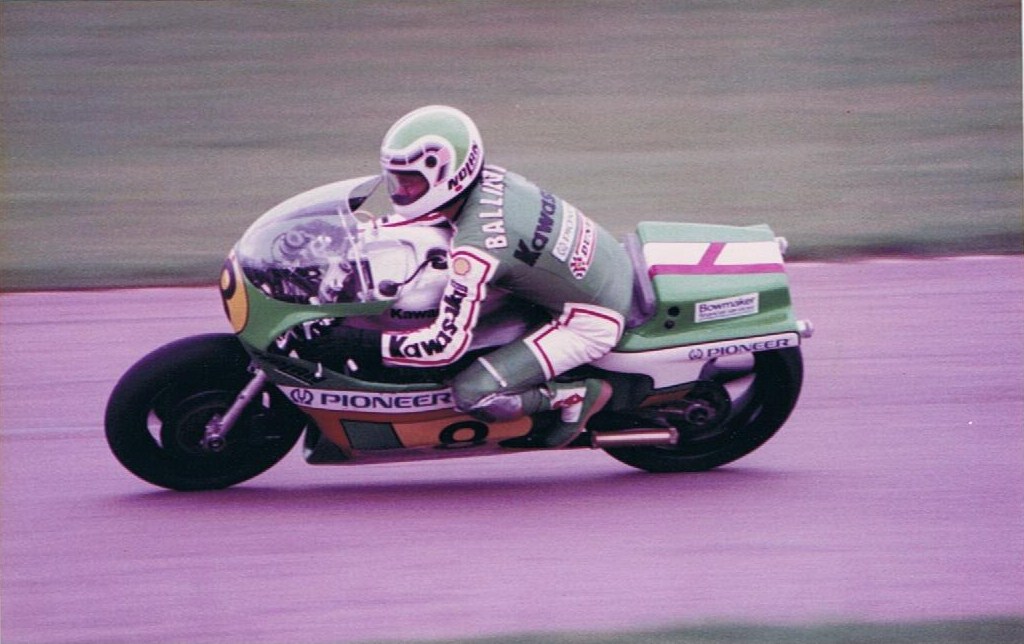
20. Anton Mang (Germany)
Mang’s career in GP racing was as mechanic to Dieter Braun but after winning the 1975 German 350cc Championship, he moved into the World Championship a year later, his first victory coming at that year’s 125cc GP at the Nurburgring. His success saw him eventually snapped up by Kawasaki in 1978, a partnership that saw him win the 1980 and 1981 250cc and 1981 and 1982 350cc World Championships as well as the German Sportsman of the Year accolade.
After a failed attempt in the 500cc class, he returned to 250s in 1984, finishing second a year later. Joining the works Honda team in 1986, he added a fifth World Championship in 1987 at the age of 38 but injuries forced him to retire after a crash in the following year’s Yugoslavian GP.
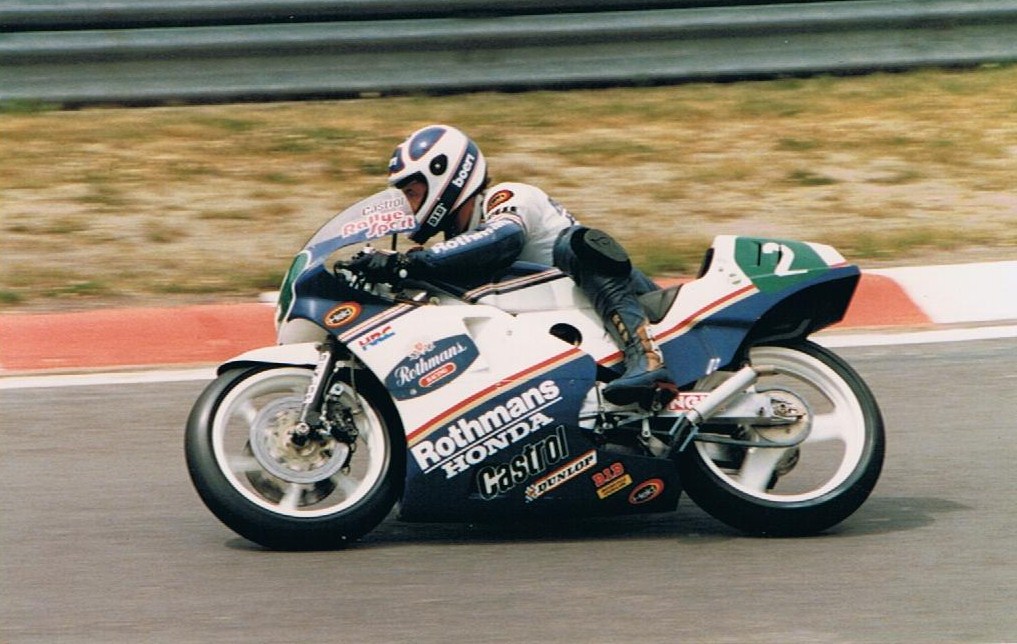
19. Troy Bayliss (Australia)
Having finished third in the 1996 Australian Superbike Championship and second in 1997, Bayliss’ big break came as a wildcard in the 250cc Australian Grand Prix when he finished sixth on the unfancied Suzuki. It led to two years in the British Superbike Championship on Ducati machinery, winning the title in 1999, and three subsequent years in the World Superbike Championship followed, winning the title in 2001, again for Ducati.
After three years in MotoGP, he was back in the WSB paddock in 2006 winning the title for a second time that year and again in 2008. He retired at the end of that season whilst still very much at the top of his game and with 52 wins, he’s the second most successful rider in WSB. He also won the Valencian MotoGP round as a wildcard in 2006.
18. Jim Redman MBE (Rhodesia)
Born in London in 1931, Redman emigrated to Rhodesia in 1952 where he soon took up racing. His first attempt on the European scene wasn’t successful but he returned in 1960 and gained factory rides with Honda for part of the season. It was a partnership that would run until his retirement in 1960 and he would go on to claim four consecutive 350cc World Championships between 1962 and 1965.
In 1962 and 1963, he also took the 250cc title before becoming the first rider in history to win 3 Grand Prix races in one day, at Assen in 1964. With six TT wins also to his name, he moved to the 500cc class in 1966 but, after winning the opening two races, broke his arm at the Belgian Grand Prix and retired shortly afterwards. He won 45 GP’s in total and was awarded the MBE for his achievements.
17. Gary Hocking (Rhodesia)
Born in Newport, Wales but brought up in Rhodesia, Hocking returned to Europe in 1958 and although his career was sadly brief, he had a major impact. Hocking was offered a ride with MZ in 1959, finishing second in that year’s 250cc World Championship and it was that form that saw him snapped up by MV Agusta. He immediately repaid their faith in him by finishing second in the 125cc, 250cc and 350cc World Championships.
He then became their number one rider, winning both the 350cc and 500cc Championships in 1961. He returned to defend his crowns but deeply affected by the death of his close friend Tom Phillis at that year’s TT, he announced his retirement with immediate effect returning to Rhodesia. Citing motorcycle racing as too dangerous, he took up car racing but was killed at the Natal Grand Prix at Durban later that year. He was just 25 years old.
16. Dani Pedrosa (Spain)
At just 5ft 2in tall, Pedrosa is one of the smallest Grand Prix riders and after winning the 125cc world championship in 2003 and the 250cc title in both 2004 and 2005, he was immediately promoted to the factory Honda MotoGP team where he’s remained ever since. Renowned as being one of the greatest riders of his generation, Pedrosa has done everything but win the premier category, finishing second overall on three occasions and third three times also.
His diminutive stature has led to him receiving a number of injuries preventing him from ultimately challenging for the title but with a current tally of 139 podiums, across the classes, only Rossi and Agostini have scored more.
15. Max Biaggi (Italy)
Biaggi first came to prominence when he won the 1991 250cc European Championship and he immediately moved to the 250cc world championship the following year. His first world title came in the 1994 250cc series and it led to four successive titles, three on Aprilia and one on Honda. 1998 saw him move into the 500cc category, winning his first race, and he ended the year in second overall. Seven more seasons followed in 500s/MotoGP but although he won many races the title ultimately eluded him as arch rival Valentino Rossi got the better of him.
After a year out of the sport, he returned to racing in 2007, this time in the World Superbike Championship and after riding for Suzuki and Ducati, four seasons back with Aprilia saw him win the WSB title in both 2010 and 2012. He retired at the end of 2012 but has since had wildcard outings in the series.
14. Kevin Schwantz (USA)
Schwantz had a meteoric rise in racing and after making his debut in 1984, just two years later he was making his Grand Prix debut. Two strong years in the AMA Superbike Championship in 1986 and 1987, the latter seeing the beginning of a career long rivalry with Wayne Rainey, enabled him to move to GP’s with Suzuki on a full time basis in 1988, winning two races in his first full season as well as the Daytona 200.
His arch rival, Rainey joined the Grand Prix circuit the same year and whilst Schwantz was often at a disadvantage on his underpowered Suzuki, his swashbuckling style earned him a legion of fans although he lost more world championships that he won.
He remained with Suzuki throughout his career, winning the 500cc world championship in 1993, but the paralysis of Rainey that year, combined with his own catalogue of injuries led to him retiring midway through the 1995 season.
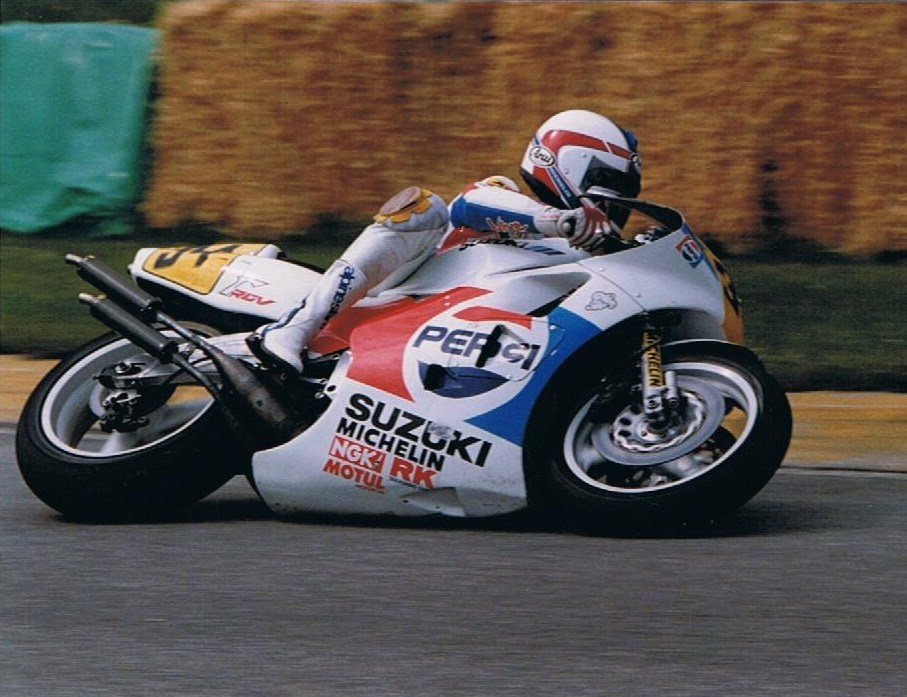
13. Wayne Rainey (USA)
Rainey followed in the footsteps of Eddie Lawson, riding for Kawasaki in the AMA Superbike Championship and finished second in 1982 and winning the title the following year. After a single season with Yamaha in the 250cc world championship, he was back in America riding for Honda and won the AMA Superbike championship for a second time in 1987. That allowed him to move back to Grands Prix where he rejoined Kenny Roberts’ Yamaha team.
After finishing third overall in 1988 and second in 1989, Rainey went one better in 1990, finally winning his first world title, and it sparked a run of three successive championships. He was well on course for a fourth straight title in 1993 but a relatively innocuous looking crash at Misano towards the end of the year left him permanently paralysed from the waist down, a cruel end to a glittering career.
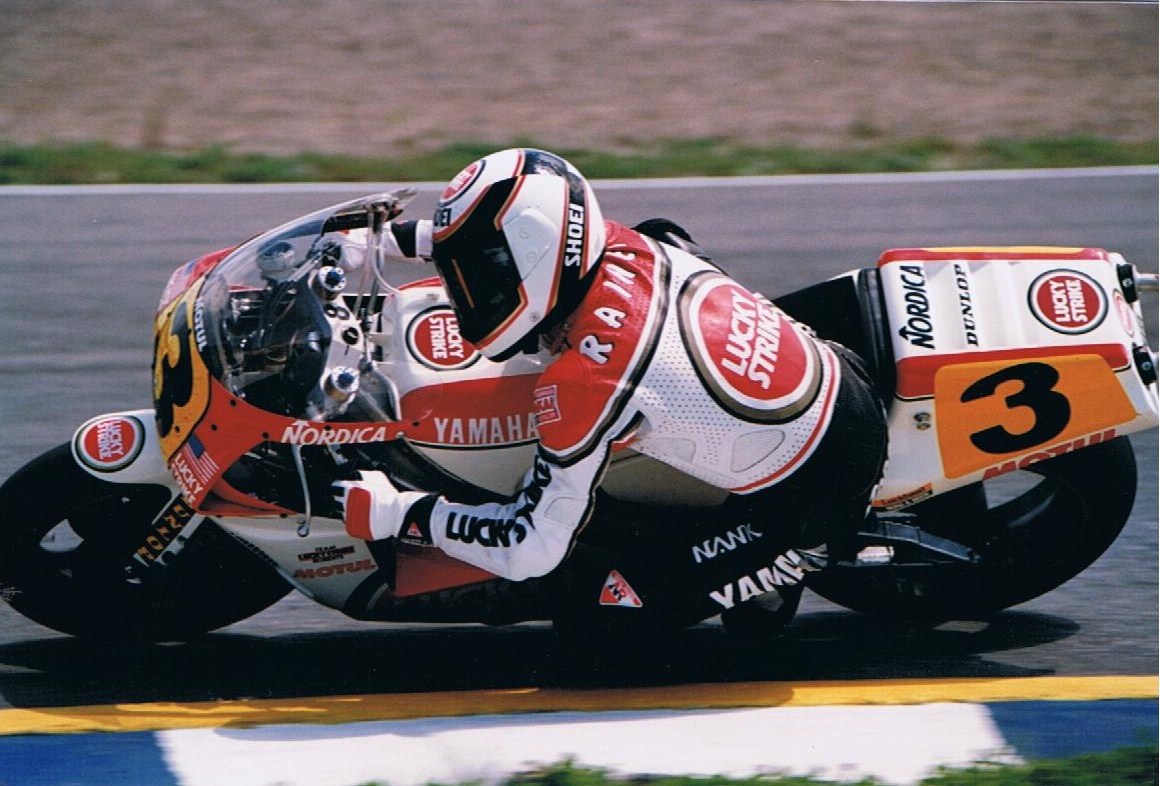
12. Eddie Lawson (USA)
Having finished second in the 1979 AMA 250cc Championship, Lawson moved to Kawasaki and won the AMA Superbike Championship in 1981 and 1982, also winning the 250cc series in 1980 and 1981. Europe was the next step and from 1983 until 1988 he rode for the factory Marlboro Yamaha team taking an impressive three 500cc World Championships in 1984, 1986 and 1988.
A shock move to Honda in 1989 saw him take a fourth world title becoming the first rider to win back-to-back championships on machines from different manufacturers.
In an era that saw some of the greatest ever racers, ‘Steady Eddie’ was regarded as one of the finest racers of his generation and when he retired at the end of 1992, he ranked third on the all-time 500cc Grand Prix wins list with 31, whilst he also gave Cagiva their first ever Grand Prix victory. In addition, Lawson also won the Suzuka 8-Hour and Daytona 200 races.
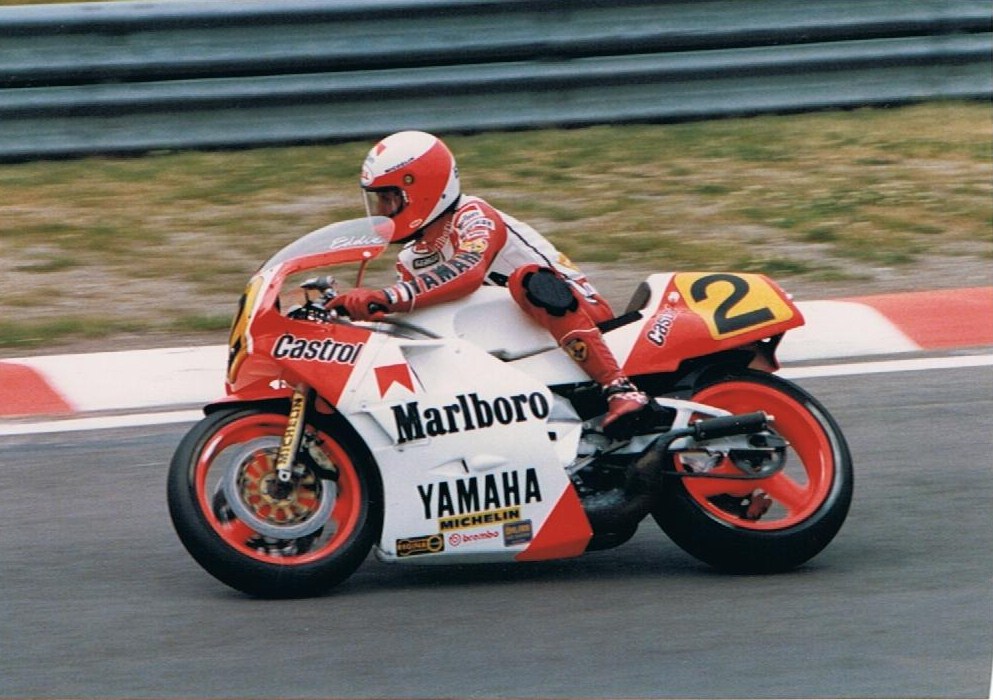
11. Carlo Ubbiali (Italy)
Born in 1929, Ubbiali was the dominant force in the smaller classes of Grand Prix motorcycling in the 1950s and was, until the arrival of Giacomo Agostini, regarded as Italy’s greatest motorcycle racer. He won his first world championship for Mondial in 1951 but then moved to MV Agusta, where he won a further five 125cc titles and three 250cc crowns, taking double championships in 1956, 1959 and 1960.
He was also a five-time winner at the Isle of Man TT and his skills and talent could be seen in that he never suffered a serious crash during his 12-year Grand Prix career. He retired at the age of 30 while still in his prime and his nine World Championships tie him with Mike Hailwood and Valentino Rossi for third place on the championship win list behind only Agostini and Angel Nieto.
10. Freddie Spencer (USA)
After winning the 1978 250cc U.S. Championship, Honda America immediately snapped up Spencer but he came to prominence riding a private TZ750 Yamaha in the 1980 Transatlantic Trophy match races. By 1982, he was a full time member of Honda’s 500cc Grand Prix team on their new NS500 and took his first win at the 1982 Belgian Grand Prix. A year later, he won the title and at the age of 21 became the youngest ever winner of the 500cc championship.
Injuries interrupted his 1984 season but he bounced back in 1985 and won both the 250cc and 500cc world championships, the first, and only, rider ever to have achieved the feat. He also won that year’s Daytona 200 but it proved to be the pinnacle of his career as carpal tunnel syndrome ultimately ended his career. Aborted GP attempts followed but he did enjoy success between 1991 and 1995 in the AMA Superbike Championship and is still regarded as one of the greatest ever Grand Prix riders.
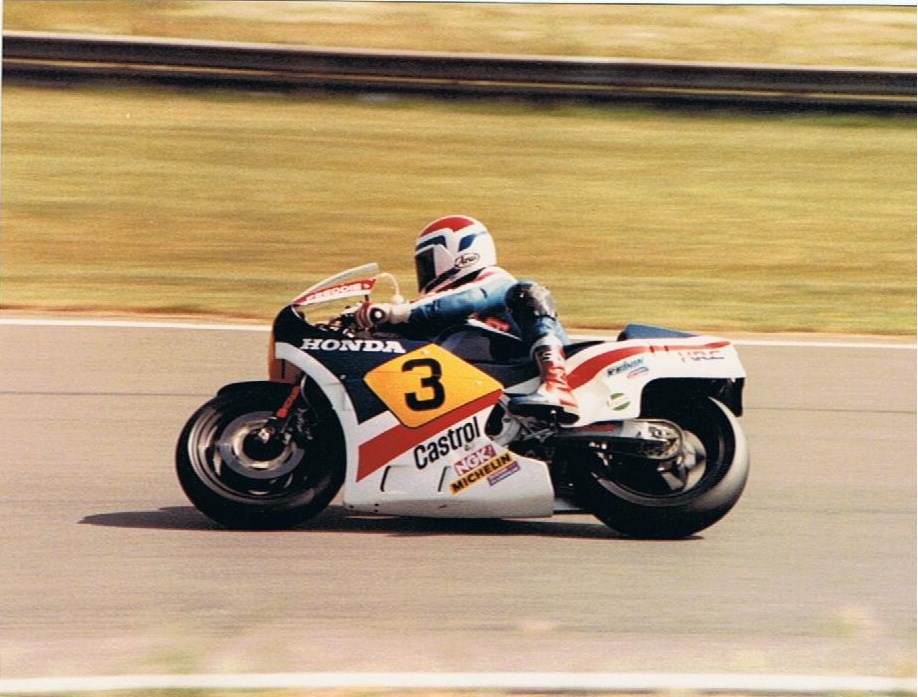
9. Angel Nieto (Spain)
Nieto specialized in racing small capacity bikes such as in the 50cc, 80cc and 125cc classes, taking his first world title in the 1969 50cc Championship when riding for Derbi. His first 125cc title came in 1971, also for Derbi, and he went on to take world titles for Kreidler, Bultaco, Minarelli and Garelli, seven in the 125cc category and six in the 80cc. His tally of 13 world titles remains the second highest of all time only Giacomo Agostini (15) holding more.
In total, Nieto won 90 Grand Prix races, the third highest ever total, and stood on the podium 139 times, which is also the third highest ever. He retired in 1986 at the age of 39 with the superstitious Spaniard referring to his world championship tally as “12+1”. After retiring, he successfully ran a Grand Prix team and now commentates on Spanish television.
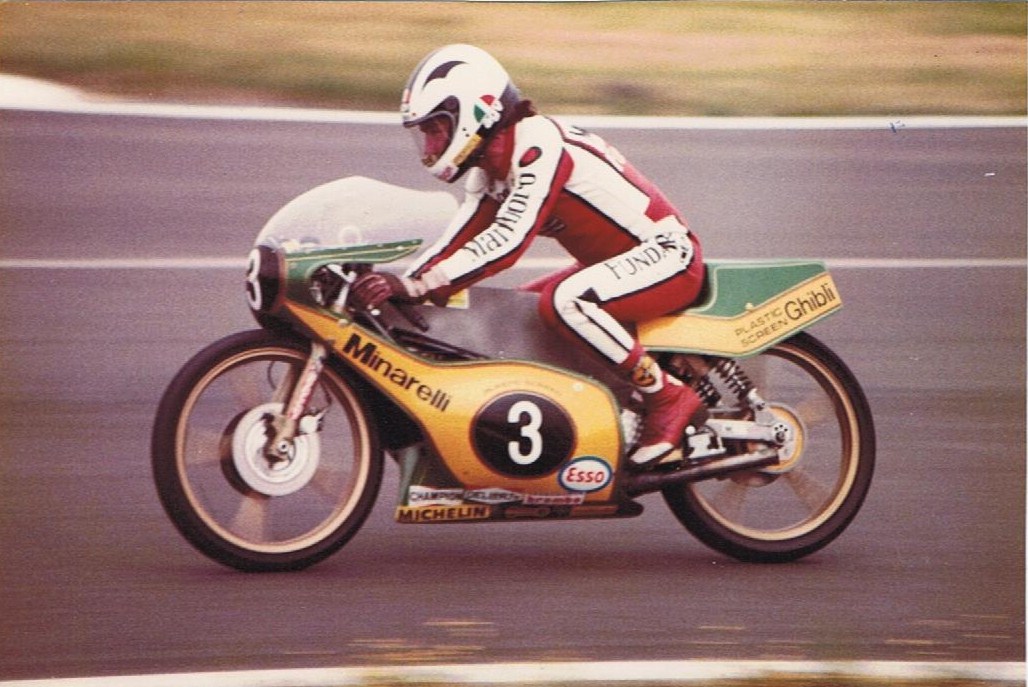
8. Casey Stoner (Australia)
Stoner moved to the UK in 2000 to pursue a racing career and by 2002, he was already a full time Grand Prix rider. Wins and podiums soon followed in the 125cc and 250cc categories for the factory Aprilia and KTM teams, finishing second overall in the 2005 250cc World Championship. It’s his performances in the MotoGP category that he’s best remembered for, particularly his mastery of the Ducati machines.
Stoner’s first world title came in 2007 but although he won many races over the next three seasons, finishing second overall in 2008, he was unable to make a full challenge on the title. However, a move to Repsol Honda in 2011 did and with 10 wins from 18 races, he won his second title. He finished third the following year and then shocked the racing world when he announced his retirement at the end of 2012, aged just 27, with many considering him one of the fastest and most talented riders ever to have raced.
7. Jorge Lorenzo (Spain)
Lorenzo made his world championship debut on his 15th birthday in 2002, winning his first GP the following year. After three seasons in the 125cc class, he moved to the 250cc category firstly with Honda and then Aprilia, winning the 2006 and 2007 world championships for the latter. That prompted a move to the Yamaha MotoGP team where he’s remained ever since, going on to become one of the finest riders within the sport.
The Majorcan won the MotoGP title in both 2010 and 2012, also finishing second overall in 2009, 2011 and 2013 and has become renowned for being one of the smoothest, most consistent riders of his generation. He’s enjoyed tremendously rivalry with Rossi, Stoner, Pedrosa and Marquez and by the end of 2015, he’d amassed 60 GP wins (the fifth highest total ever) and 132 podiums (also the fifth highest total).
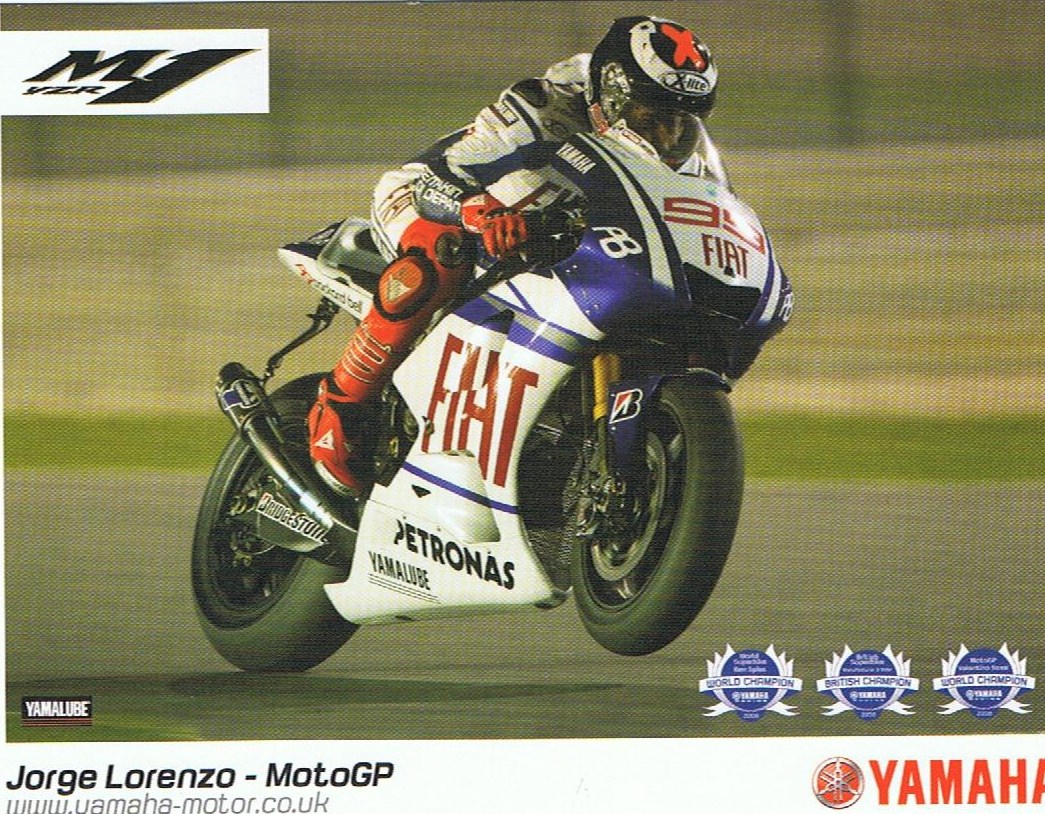
6. Kenny Roberts (USA)
Having been a two-time winner of the AMA Grand National Championship, Roberts had brief, but successful, forays into Europe during the mid-1970s before embarking on a full-time Grand Prix career in 1978. Continuing his association with Yamaha, Roberts won the 500cc world championship at his first attempt in 1978 successfully ending the reign of Barry Sheene, and retained the title in both 1979 and 1980 with his dirt track based riding style changing the face of Grand Prix racing.
1981 and 1982 were very much development years for a new 500cc Yamaha but Roberts almost won a fourth title in 1983 after a season long battle with Freddie Spencer saw him lose out by just two points. He retired in 1984 to run his own team and took world titles with Wayne Rainey and John Kocinski before forming his own team and manufacturing his own bikes. Roberts was a keen advocate of safety standards as well as increasing the financial well-being of the riders as well as professionalism within the sport.

5. Marc Marquez (Spain)
Marquez arrived on the World Championship scene as a diminutive 15-year old in 2008 and after three years in the 125cc class, he dominated the 2010 season taking 10 wins from the 17 races to be crowned champion. He immediately moved up to the Moto2 class and after taking a close second overall in his debut year, he won the championship in 2012 with nine wins and 14 podiums.
Already earmarked as potentially being one of the sports greats, his arrival in the MotoGP category was eagerly anticipated and, riding the Repsol Honda, he didn’t disappoint not only becoming the first rider since Kenny Roberts in 1978 to win the title at his first attempt but also the youngest ever. It also made him one of just four riders, after Mike Hailwood, Phil Read and Valentino Rossi, to have won world championships in three different categories. He defended his title in 2014 and despite still only being aged 22, Marquez has already amassed 49 Grand Prix wins and 76 podiums.
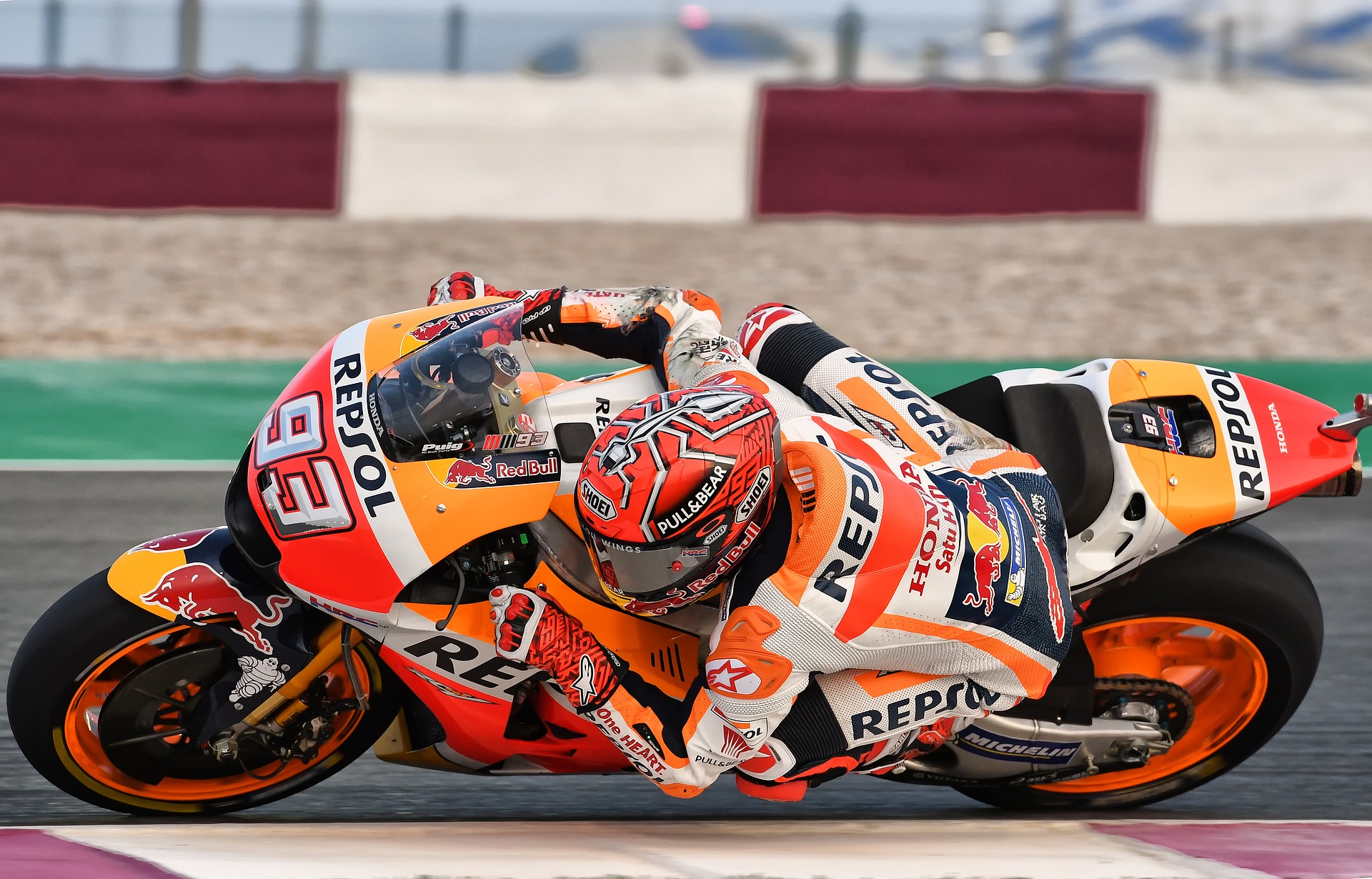
4. Mick Doohan (Australia)
Doohan raced in Australian Superbikes in the late 1980s, and also won the Australian round of the Superbike World Championship in 1988, which prompted Honda to sign him to their 500cc Grand prix team. His first year in 1989 was disappointing but a win in Hungary in 1990 showed his potential and after finishing second overall in 1991, looked set to claim his first title in 1992 after dominating the first half of the season. However, a crash at Assen saw him suffer permanent and serious damage to his right leg.
Far from fit he returned to racing but it wasn’t until 1994 that he was back to his best and he went on to win five successive 500cc world championships between 1994 and 1998 dominating the sport. Indeed, in 1997 he won 12 of the 15 races held but his career ended after a crash in qualifying for the 1999 Spanish Grand Prix left him with a badly broken leg. He retired with 54 GP wins to his name, the third highest in the premier Grand Prix category.
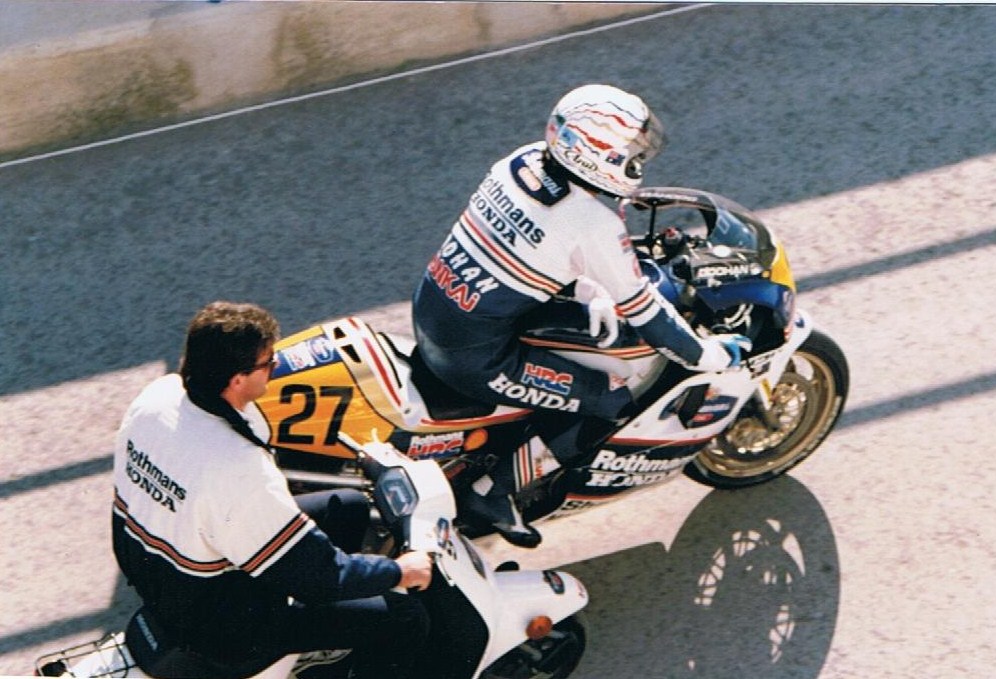
3. Jarno Saarinen (Finland)
Saarinen made his Grand Prix debut in 1970, finishing fourth overall in the 250cc world championship and a year later he won his first GP and claimed second overall in the 350cc championship and third in the 250cc. That led to him being signed on a full time basis by Yamaha and in 1972 he not only won the 250cc world championship but also finished second in the 350cc series, giving the dominant Giacomo Agostini a stern challenge.
He started 1973 with a bang, winning the Daytona 200 and Imola 200 races, two of the first three 500cc world championship races on Yamaha’s all-new 500cc machine and the first three 250cc races. A period of Grand Prix dominance was almost a certainty for the Finnish rider but he tragically lost his life along with Renzo Pasolini in a multiple pile-up at the 1973 Italian Grand Prix at Monza. Despite a brief career, Saarinen is regarded as one of the greatest ever racers and would surely have won countless world titles.
2. Giacomo Agostini (Italy)
Agostini made his name riding a Morini in the Italian national championships and in 1965, he joined MV Agusta as team-mate to Mike Hailwood, eventually finishing second in the 350cc world championship. Hailwood left at the end of the season, promoting Agostini to the number one rider and he spelt a period of dominance as he won the next seven 500cc World Championships in succession.
He also won the 350cc title between 1968 and 1973, the latter for Yamaha whom he’d joined at the beginning of that season as well as ten Isle of Man TT races. He regained his 500cc title in 1975 whilst riding for Yamaha and took his last victory, and MV Agusta’s in 1976. It was his 122nd Grand Prix win, a record total that still stands today. He retired for good at the end of the 1977 season and then enjoyed a successful spell as team manager for the Marlboro Yamaha team and also Cagiva.
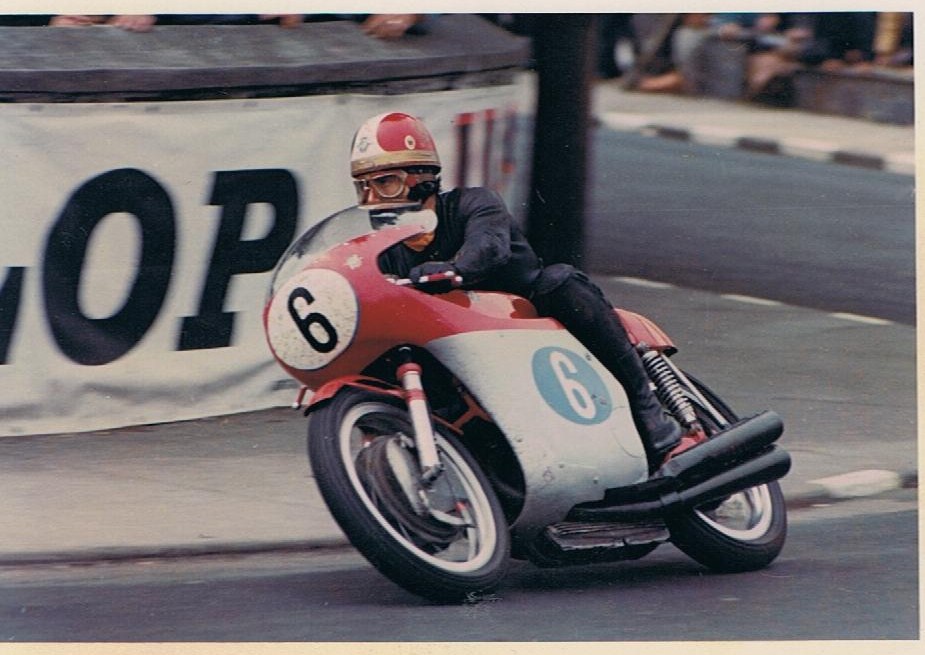
1.Valentino Rossi (Italy)
Rossi made his world championship debut in 1996 and won the 125cc title a year later on an Aprilia. Remaining with the Italian manufacturer, he moved up to the 250cc class and, after placing second overall in 1998, he won the championship in 1999. With two world titles under his belt, he graduated into the premier category and, after winning races in 2000 for Honda, he took the world championship in 2001, the last championship for the two-stroke NSR500.
Two more world titles followed for Honda before he added two more in 2004 and 2005 but this time Yamaha M1. He regained his title in 2008 and 2009 before making a switch to Ducati for 2011 and 2012. That’s proven to be his only disappointment in his 20-year Grand Prix career and, returning to Yamaha in 2013, he’s since gone on to win more races and take more podiums. The Italian ranks highest in the all-time 500cc/Moto GP wins (86), and is second in the all-time overall wins with 112, just behind Giacomo Agostini’s 122.
He’s also take a record 210 Grand Prix podiums, comfortably clear of second placed Agostini on 159 and, along with Mike Hailwood, is regarded as the greatest motorcycle rider of all time.
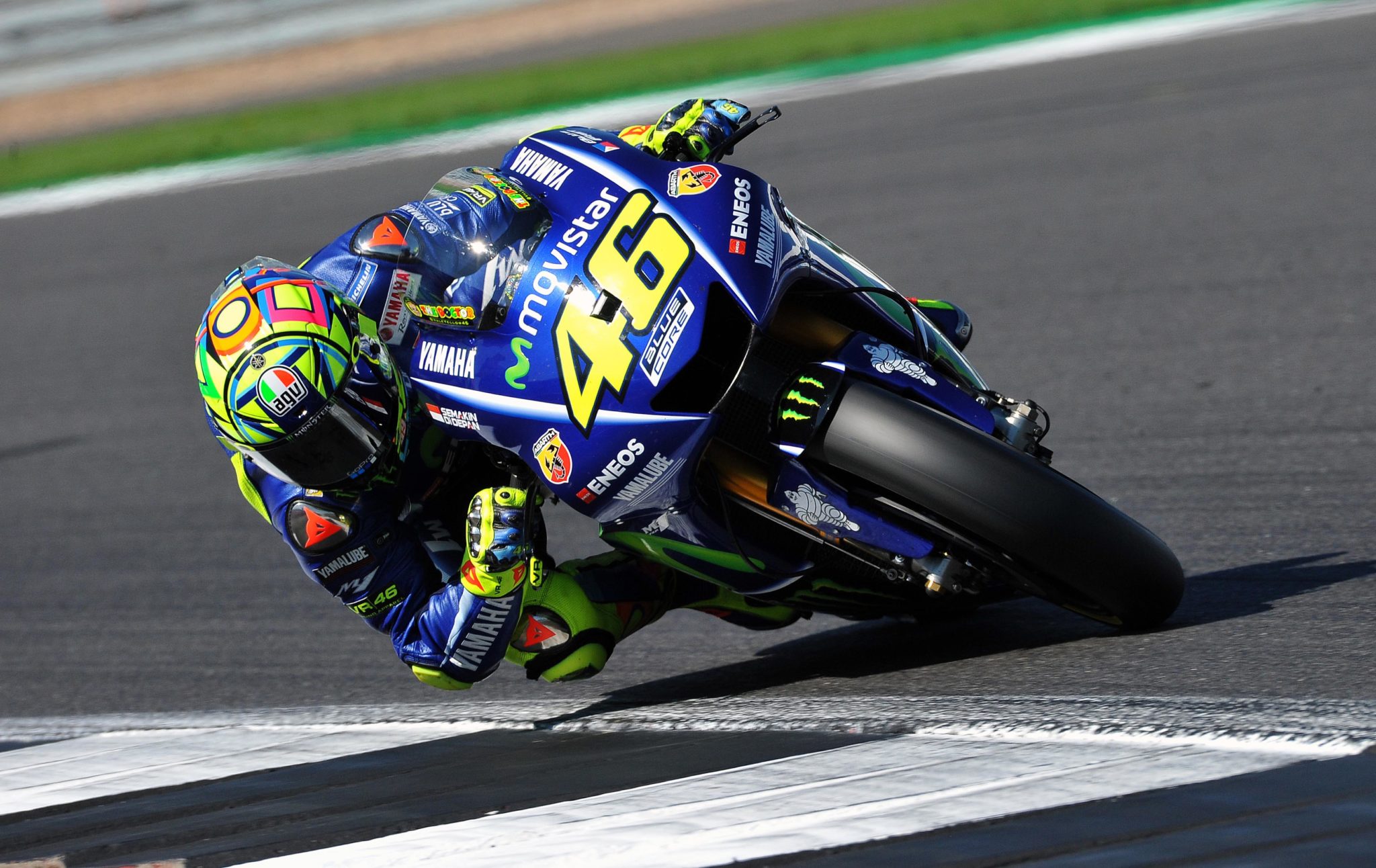
Did you enjoy our 80 Best International Motorcycle Racers? Did they all cut the mustard? Share your comments below…

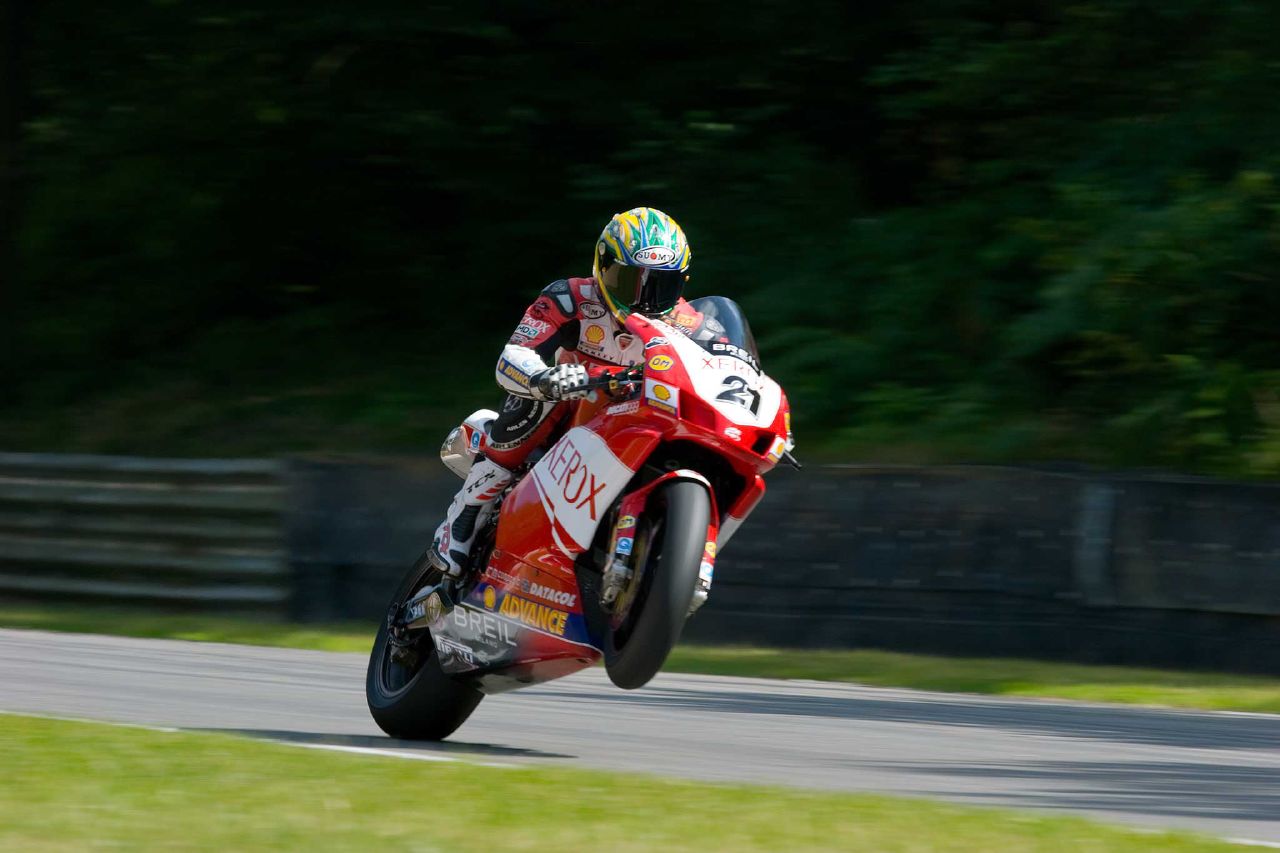
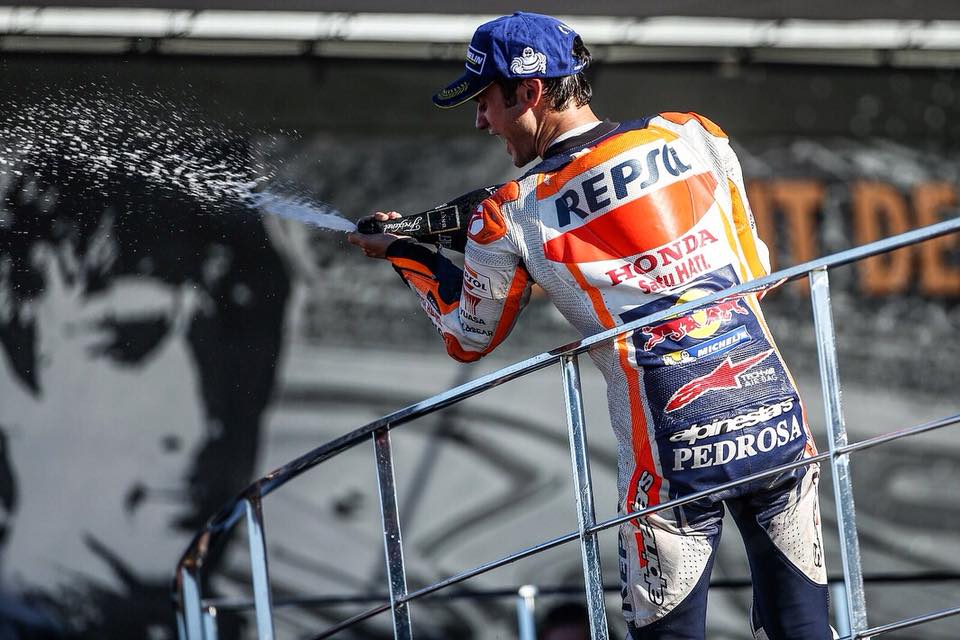
2 comments on “80 Best International Riders”
Why is Fred huggett not on here!!
You seem to has missed a rider called Jonathan Rea . He’s from a wee island called North Ireland in the UK . I believe he’s had 117 Worldsuperbike victories. MAYBE you’ve heard of him.